Slave to the Game
Online Gaming Community
ALL WORLD WARS
PHOTO DIARY OF THE GERMAN 291 INFANTRY DIVISION: FROM LATVIA TO BATTLE FOR THE VOLCHOV POCKET, 1941-42. PHOTOS BY GEORG GUNDLACH. PART II
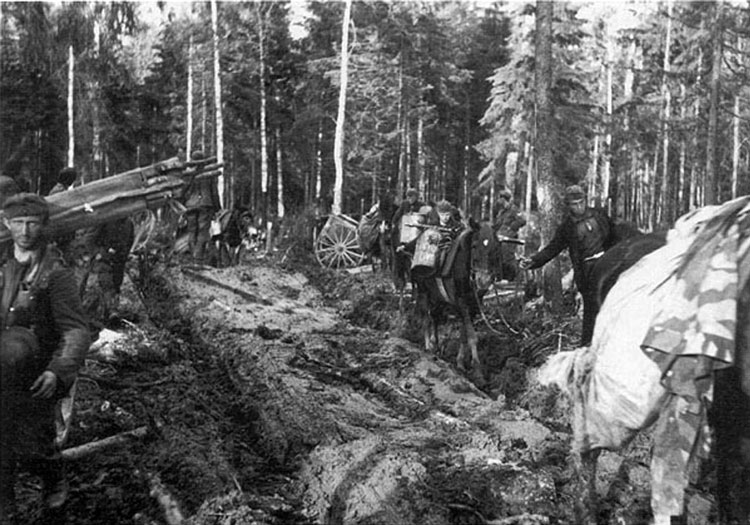
Almost impassible forest roads were the major obstacle for moving forward.
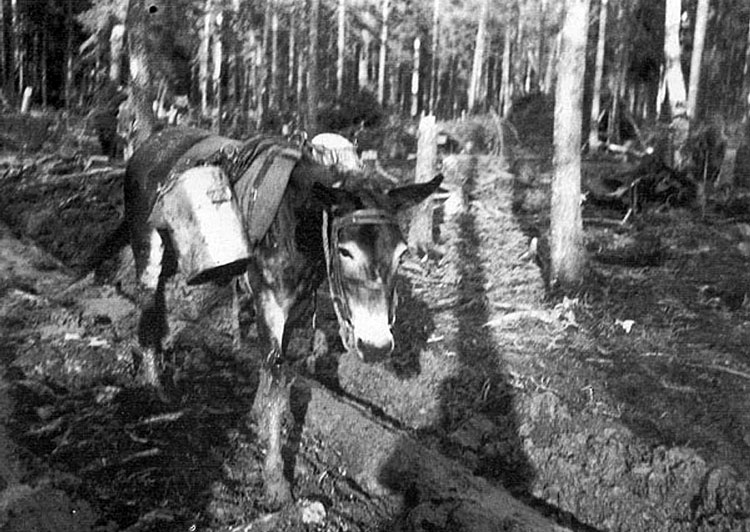
Almost impassible forest roads were the major obstacle for moving forward.
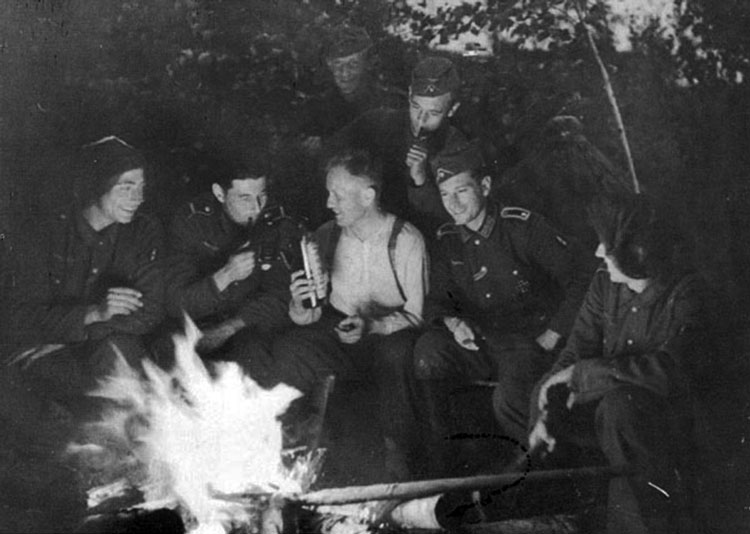
Discussion near the campfire, Volchov forest.
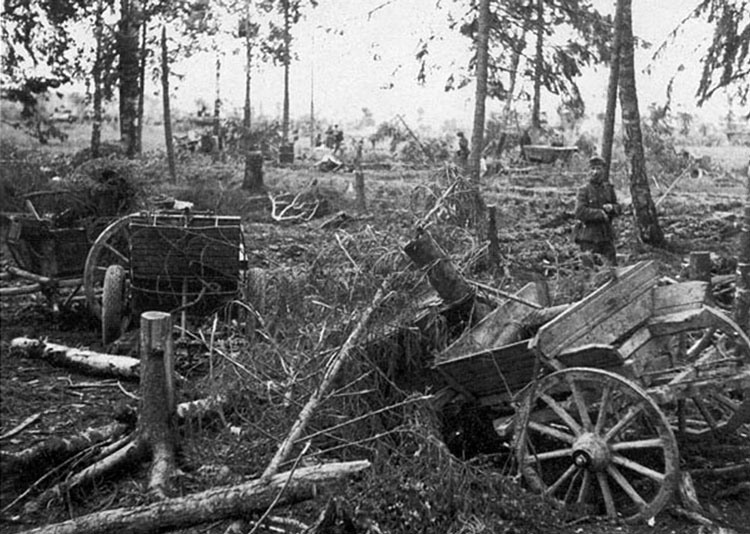
Complete chaos signalled the end of the Second Shock Army under general Vlasov.
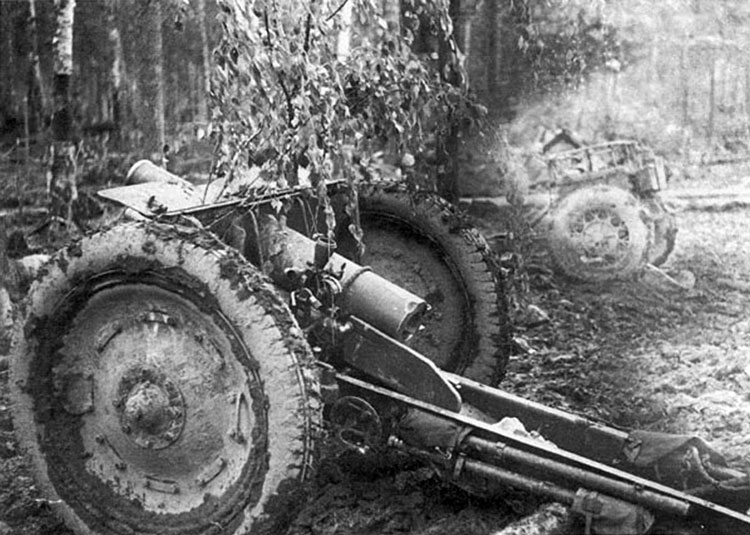
Abandoned weaponry, materiel and vehicles.
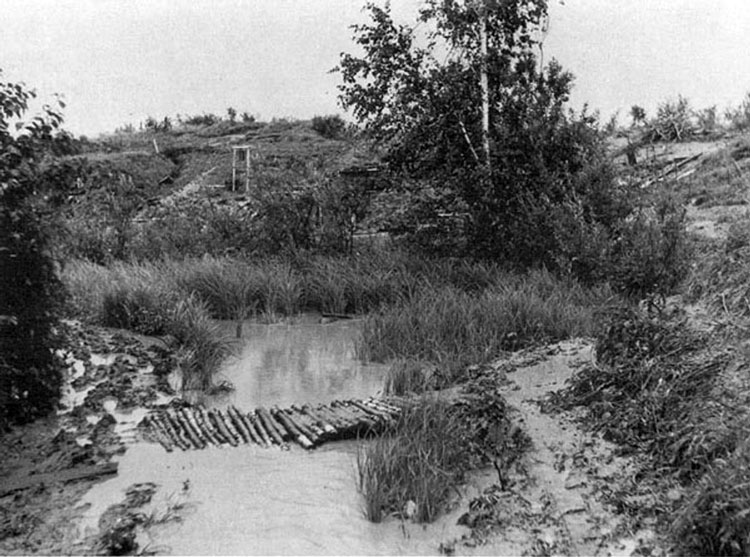
Bunker to the north of Glushitza River, August 1942.
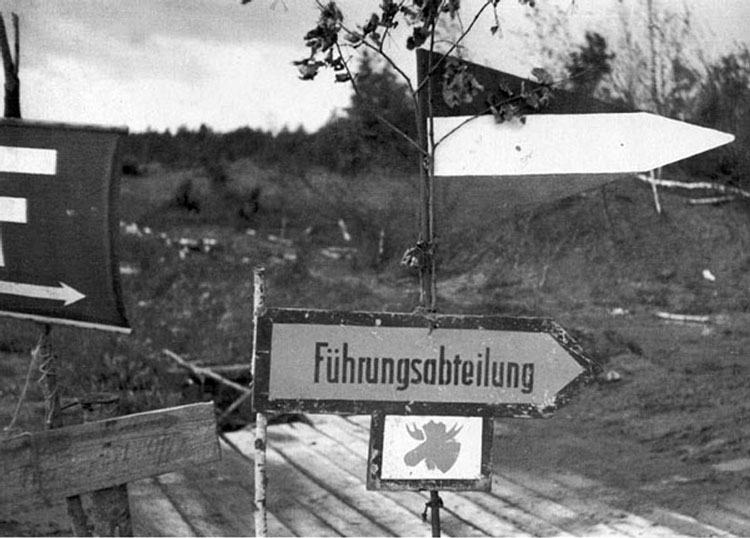
Sign directing traffic to the Divisional HQ, near Glushitza River, July 1942.
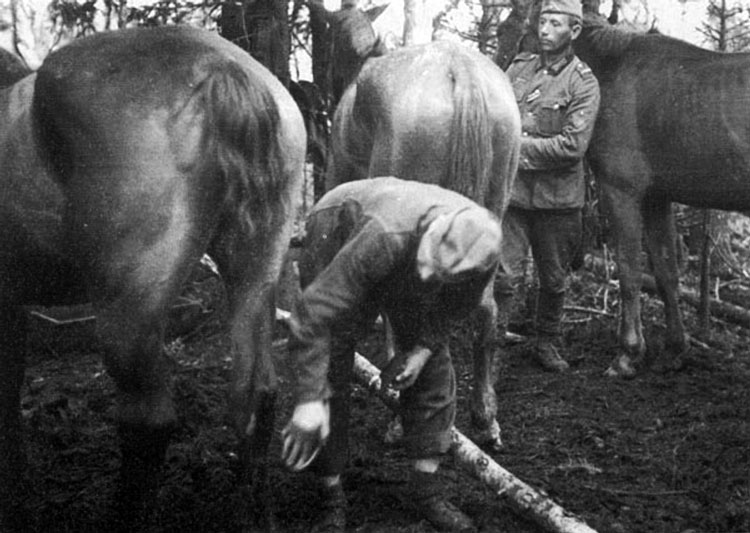
Soldiers taking care of the horses.
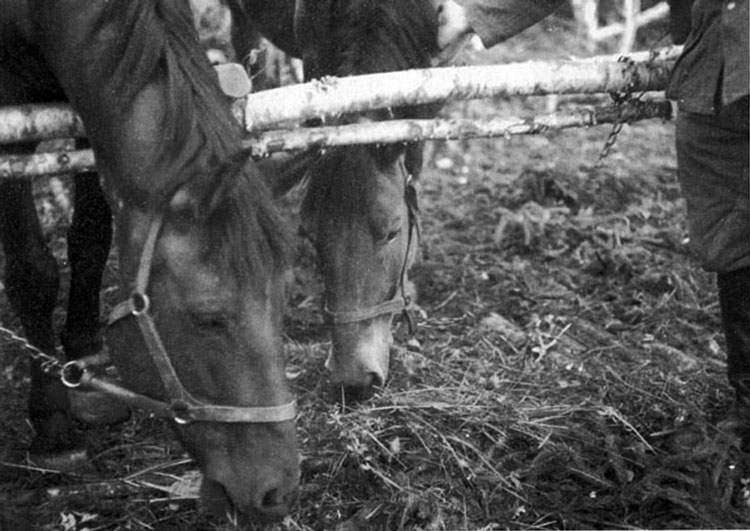
Soldiers taking care of the horses.
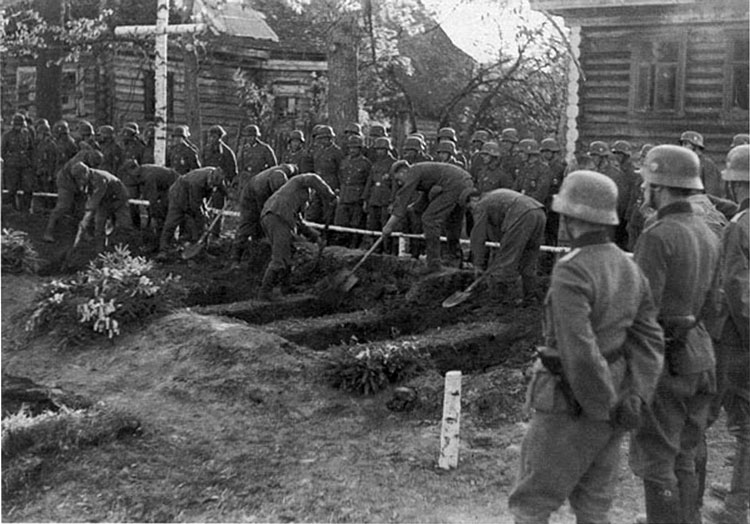
Graber-12 soldiers in the Volchov Podub'e-site was excavated. Colonel Gurran and a company of the Regiment. proved the last respects to fallen comradesGraber-12 soldiers in the Volchov Podub'e-site was excavated. Colonel Gurran and a company of the Regiment. proved the last respects to fallen comradesPreparing the graves for the burial on Volchov Podub'e site. Colonel Gurran and a company of the Regiment paying the last respect to the fallen comrades.
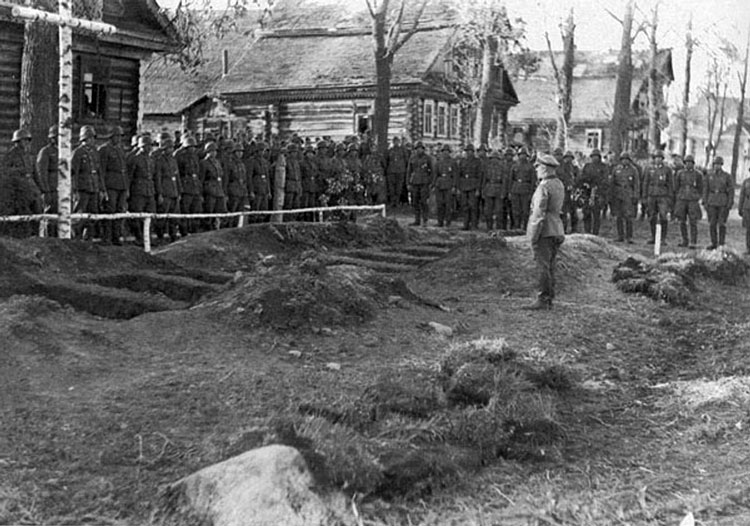
Captain Belau was among the dead, May 1942.
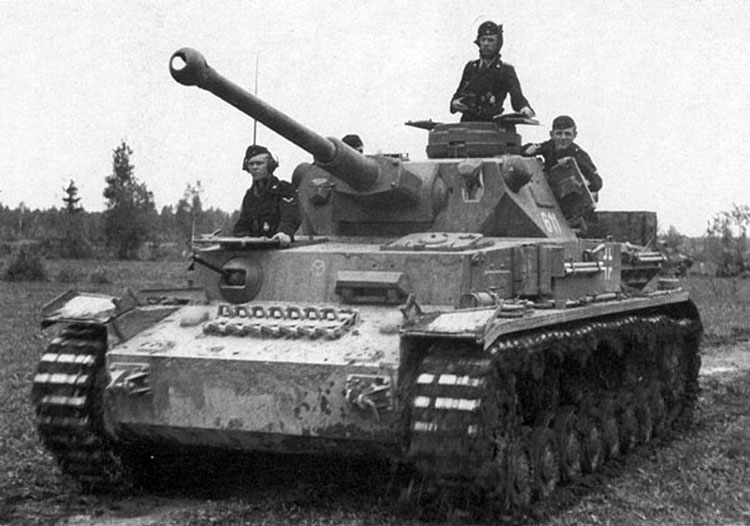
Tanks help to complete encirclement, 1942.
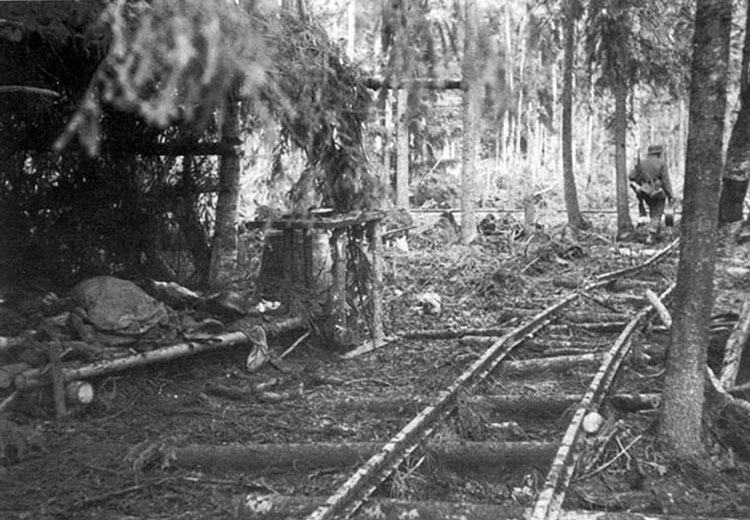
Railway line, destroyed during the battle for the Volchov Pocket, 1942.
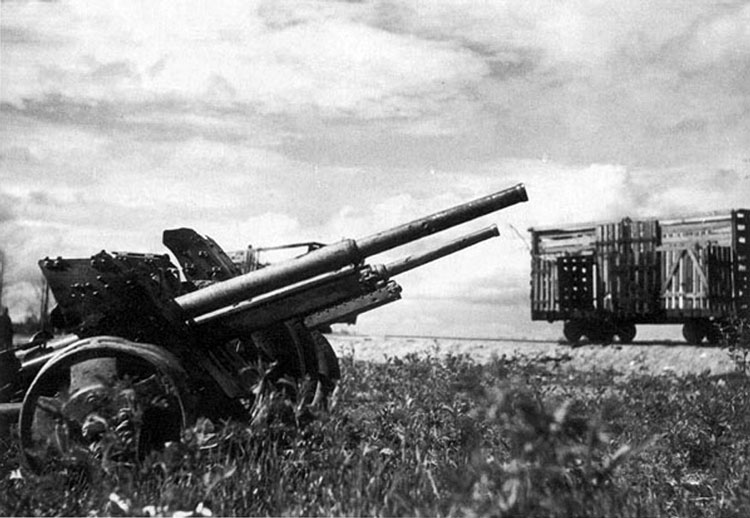
Damaged Russian guns near railroad line Tosno-Kamenka, July 1942.
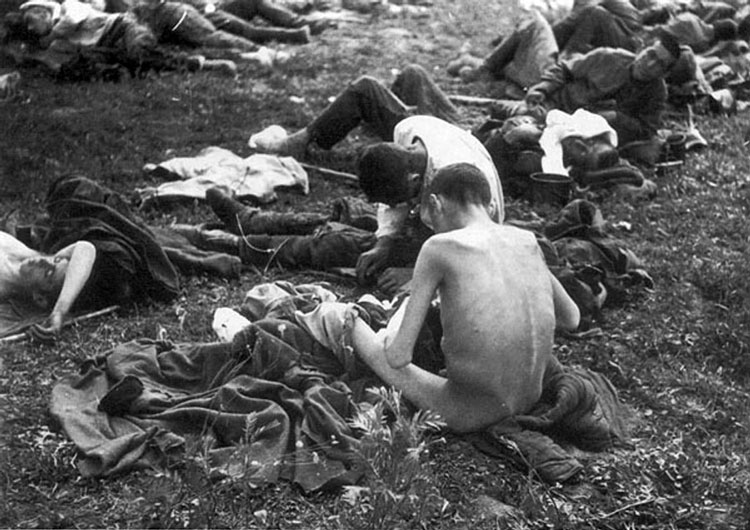
Russian soldiers in the Volchov pocket, exhausted by hunger, 1942.
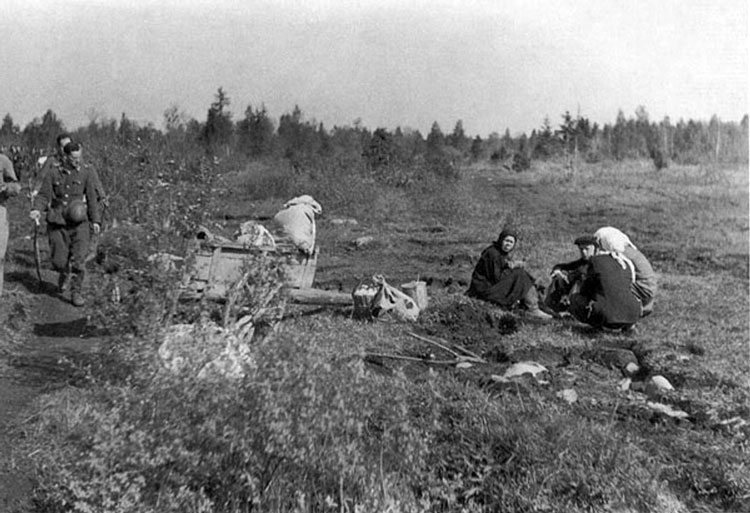
Locals with their belongings near the Volchov Forest, June 1942.
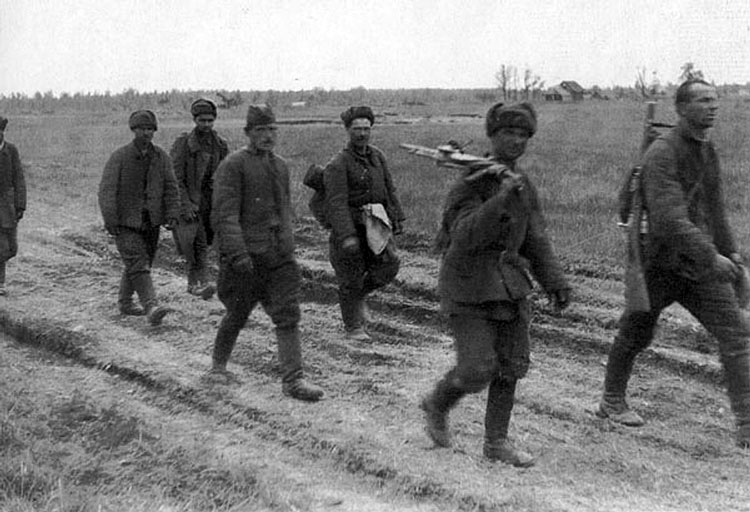
Group of Russian Soldiers surrender.
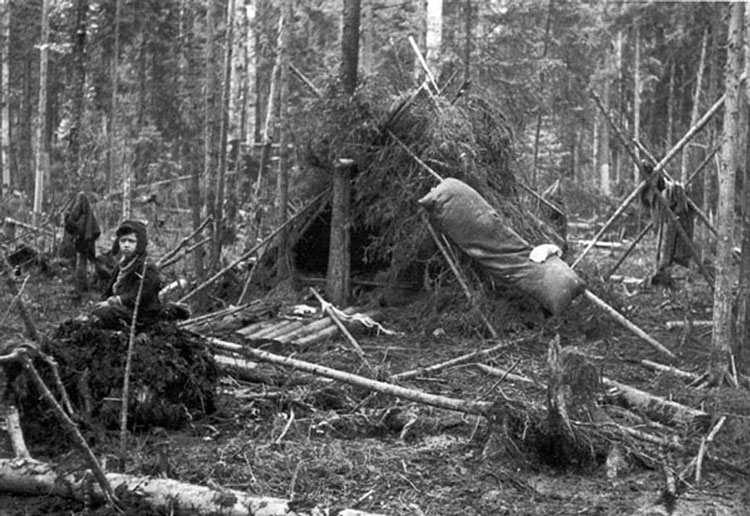
One of many forest sheds, constructed by the locals in May-June 1942.
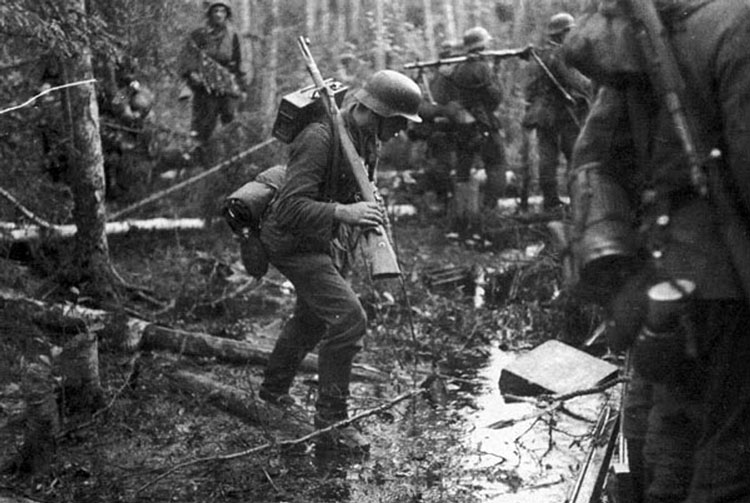
In the flooded forest.
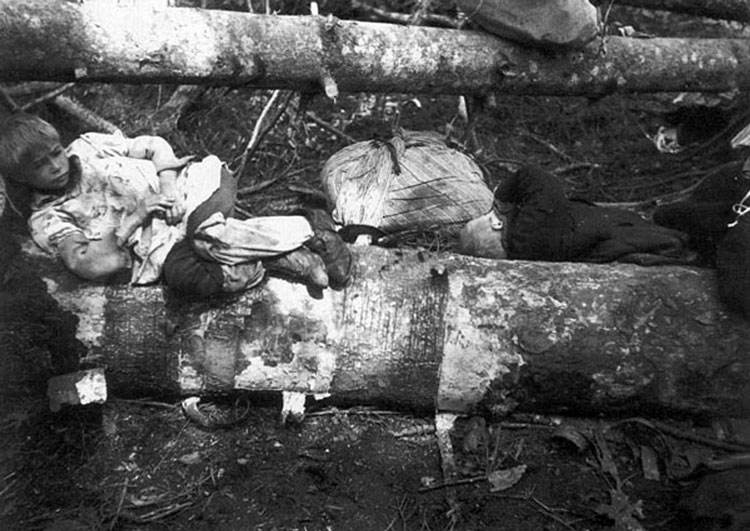
Children, abandoned in Volchov forest.
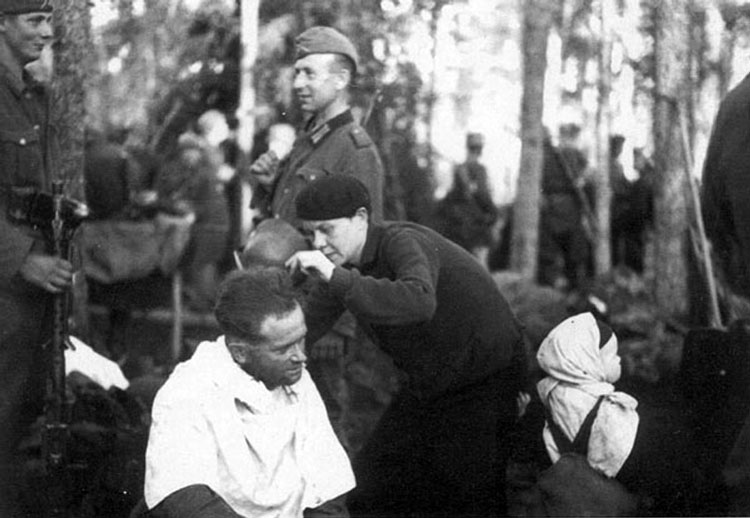
Barber shop in the Volchov forest, June 1942.
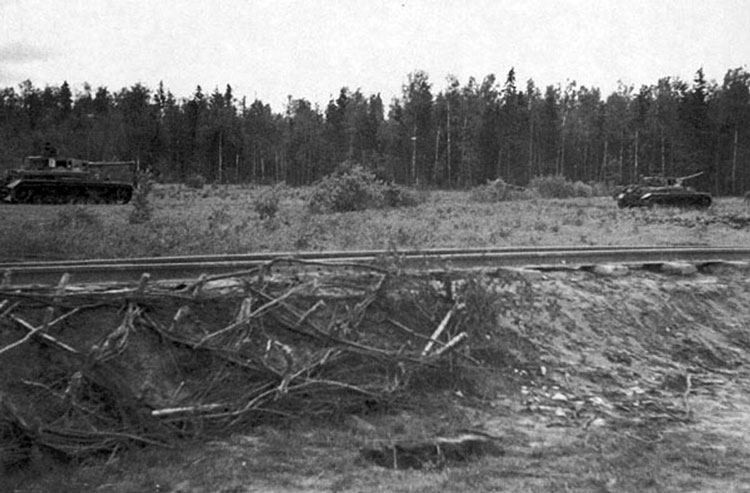
Tanks attack along the railroad line Kamenka-Eglino, throwing enemy back into the Volchov Pocket.
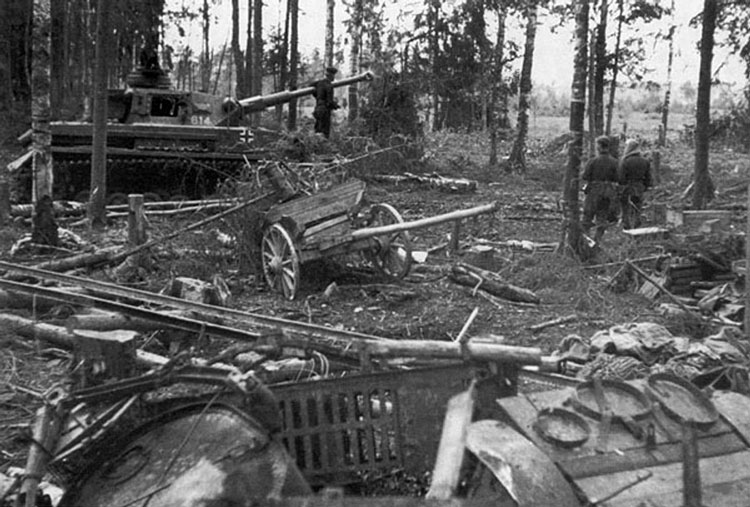
German tanks reached "Erika" clearing and completed the encirclement.
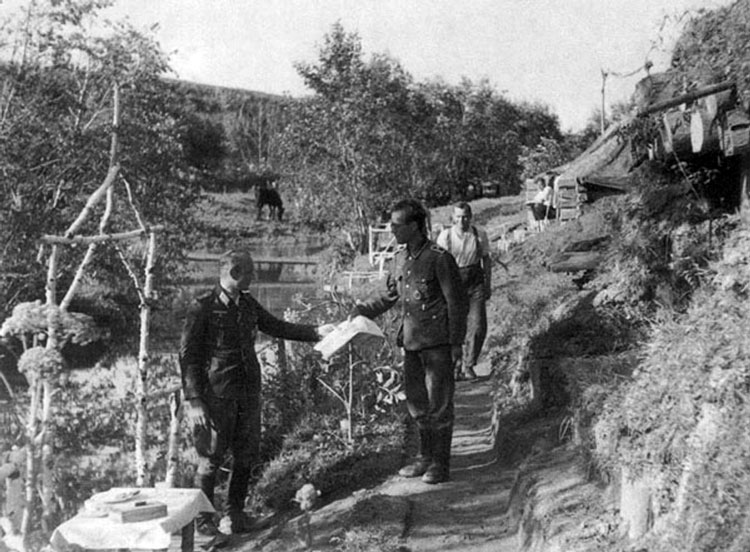
Company's messenger in HQ 14/506, near Glushitza River, 1942.
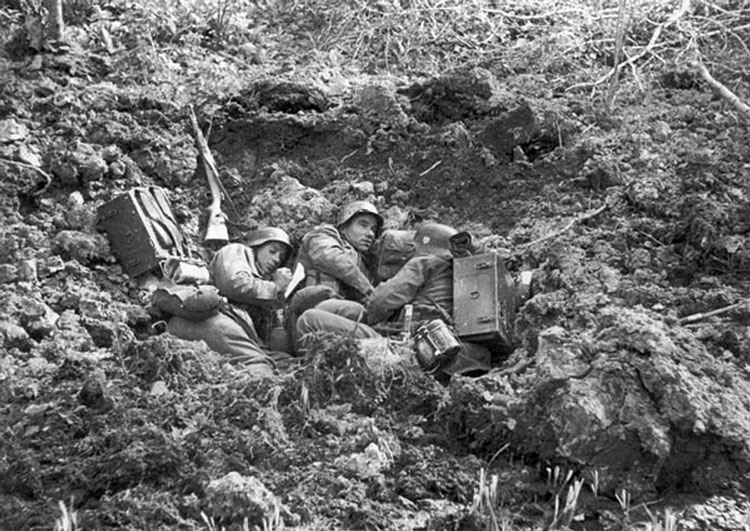
Signal unit in the blast crater.
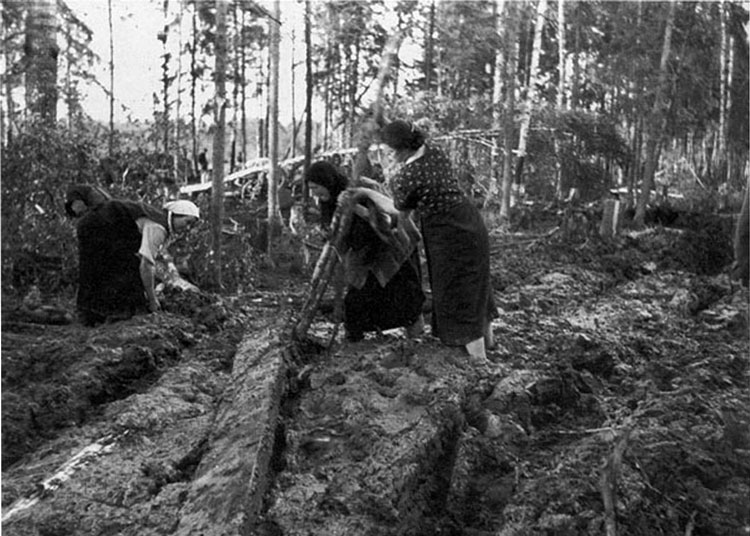
Women trying to clear the rails and forest road from logs, debris and mud to provide a passage, 1942.
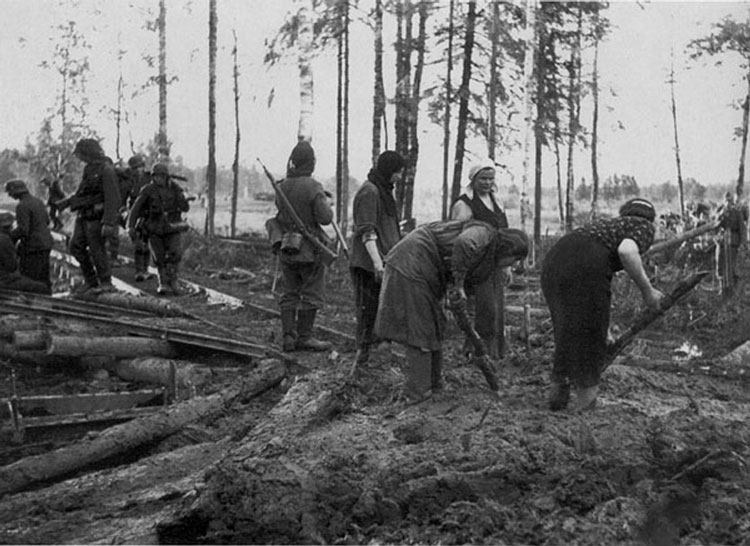
Women trying to clear the rails and forest road from logs, debris and mud to provide a passage, 1942.
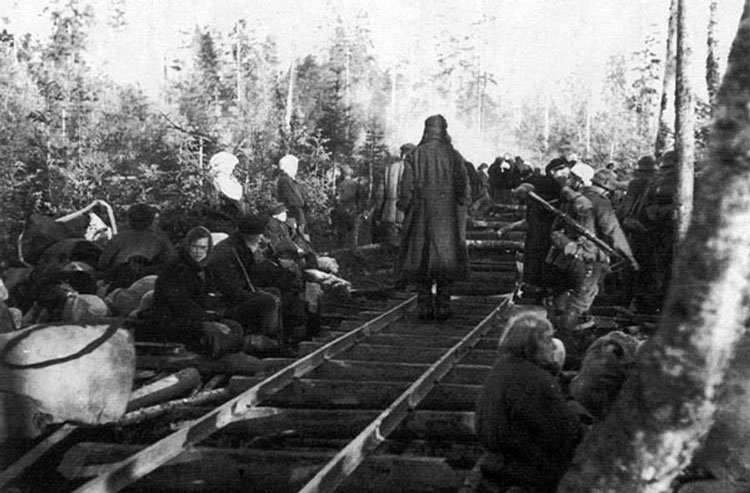
Misery of the local population, hiding in the Volchov forests, 1942.
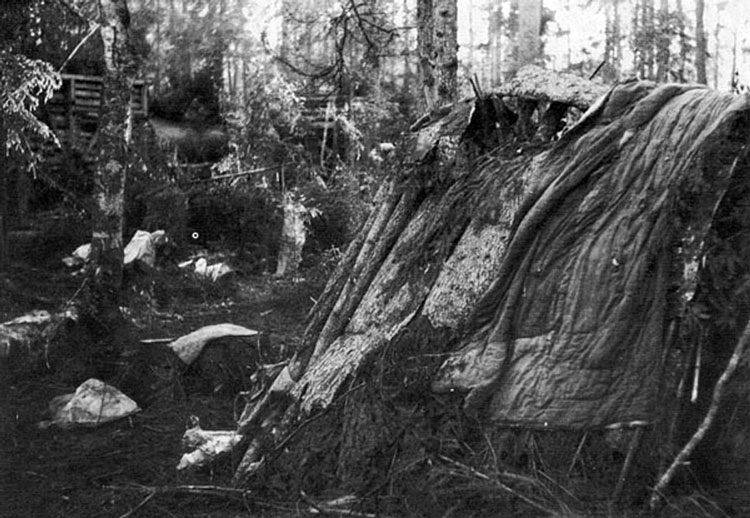
Wooden bunker and deserted sheds, covered with bark and mattresses in the Volchov forest, 1942.
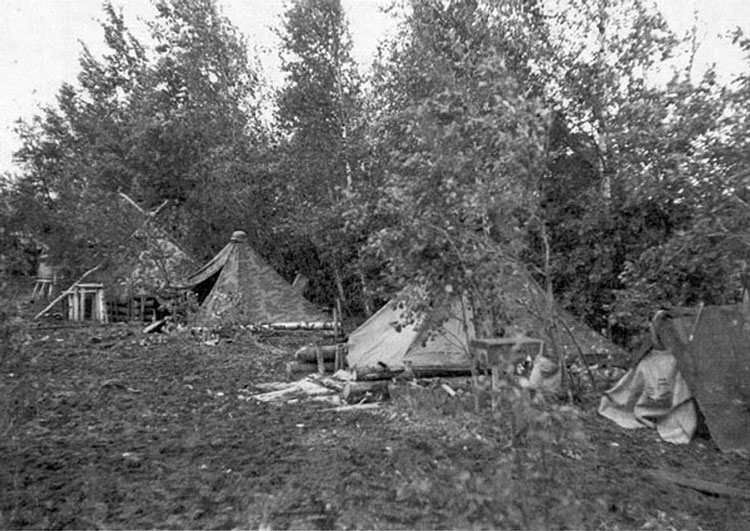
Tents in the Volchov Forest.
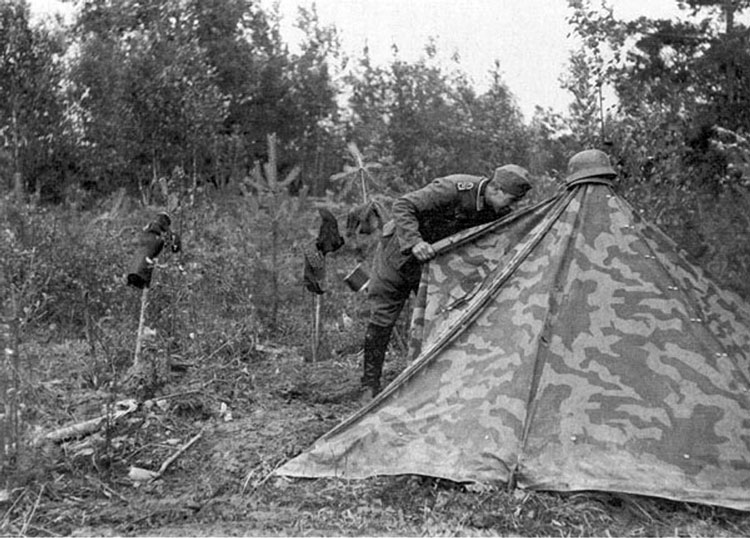
Tents in the Volchov Forest.
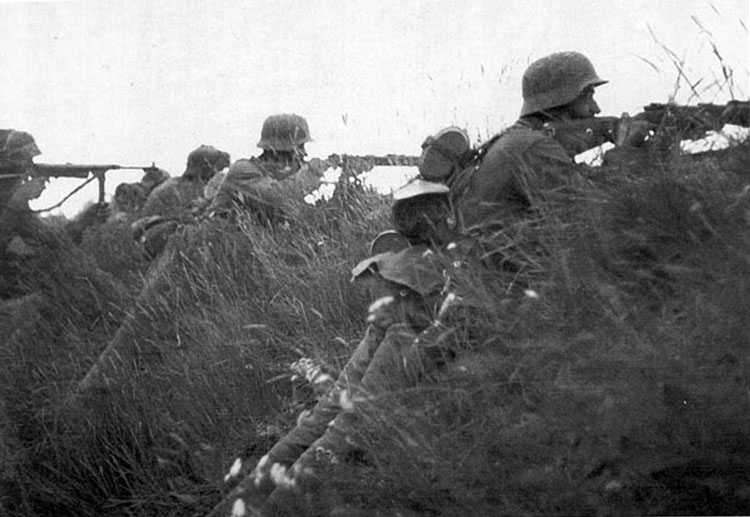
Infantrymen took positions on the slope.
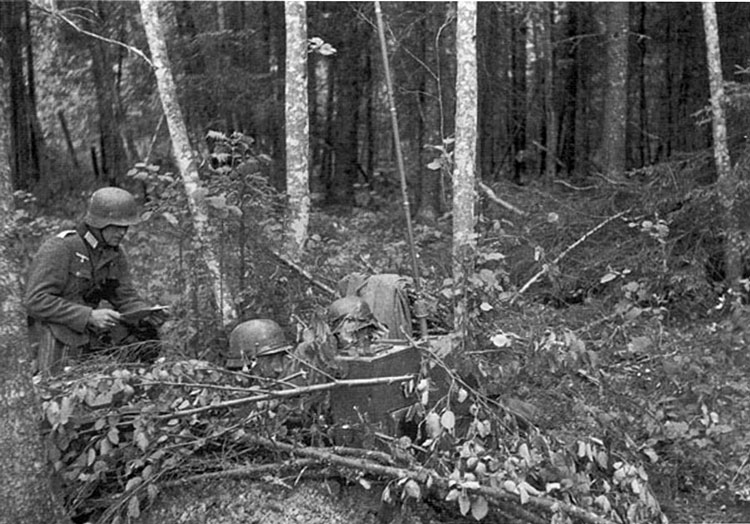
Signal unit corrects artillery fire in the forward position. .
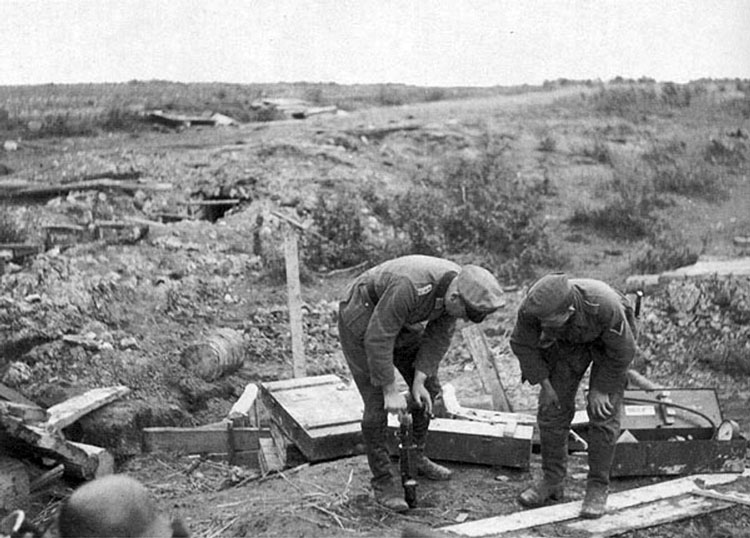
Studying soil, Volchov.
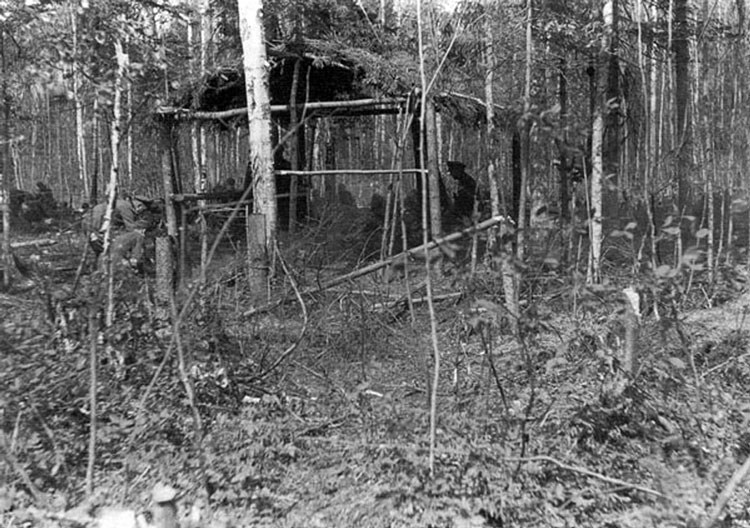
Regiment 506 HQ in the Volchov forest, June 1942.
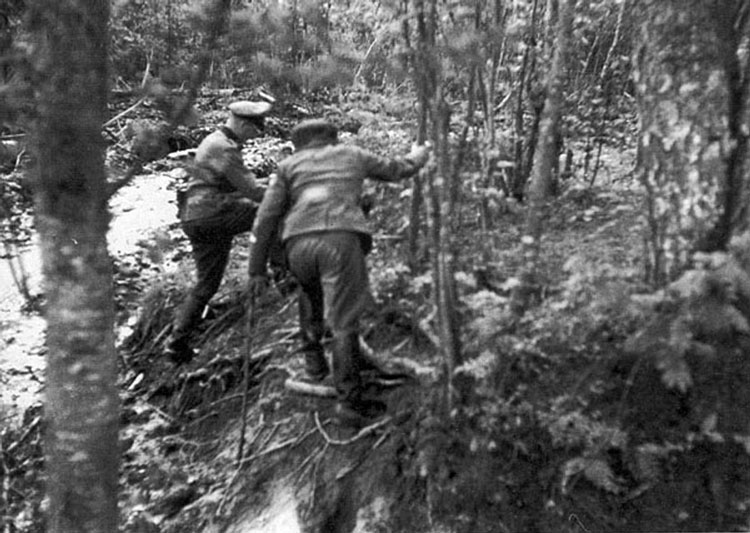
Regiment commander and captain Scheer during the action in Volchov area, 1942.
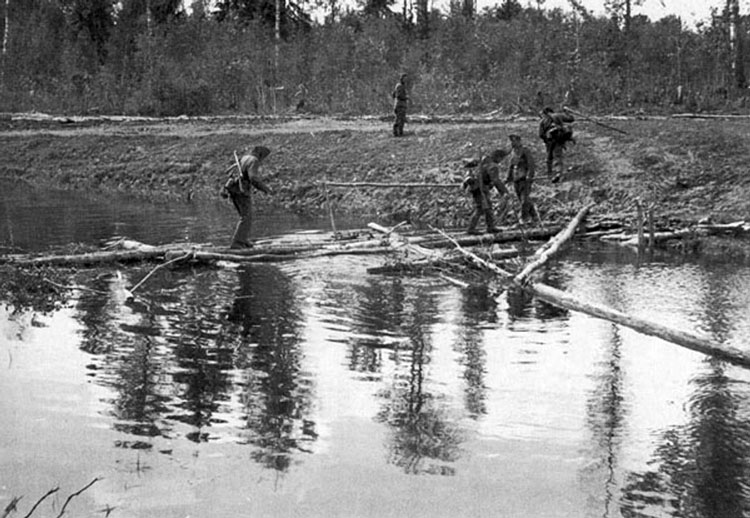
Using makeshift bridge infantry crosses the Tosna River to the south of Radofinnikovo village, 1942.
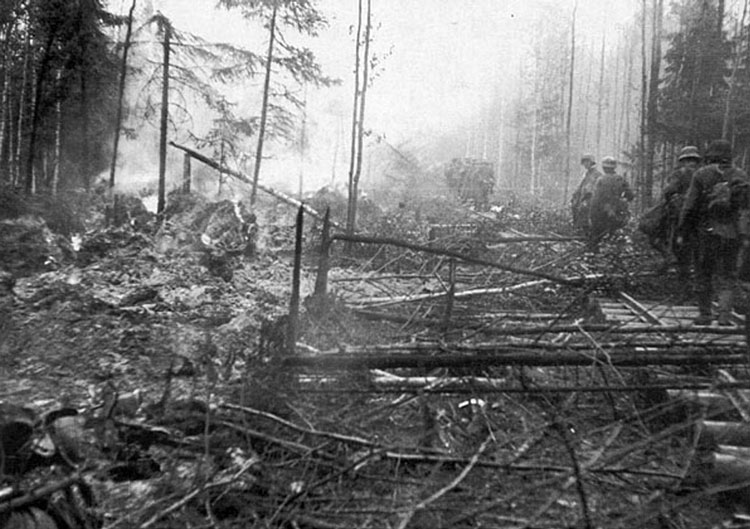
March along the rails of the famous "Erika" clearing in May 1942.
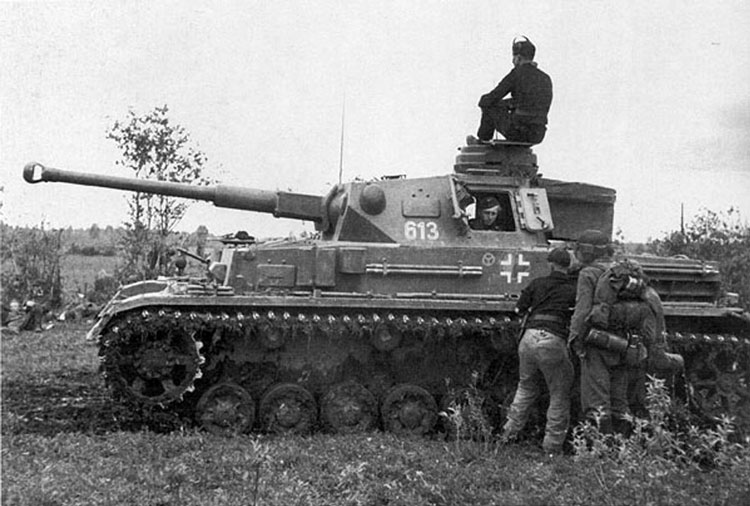
German tanks prevented escape of the Russian troops, encircled in the Volchov Pocket, 1942.
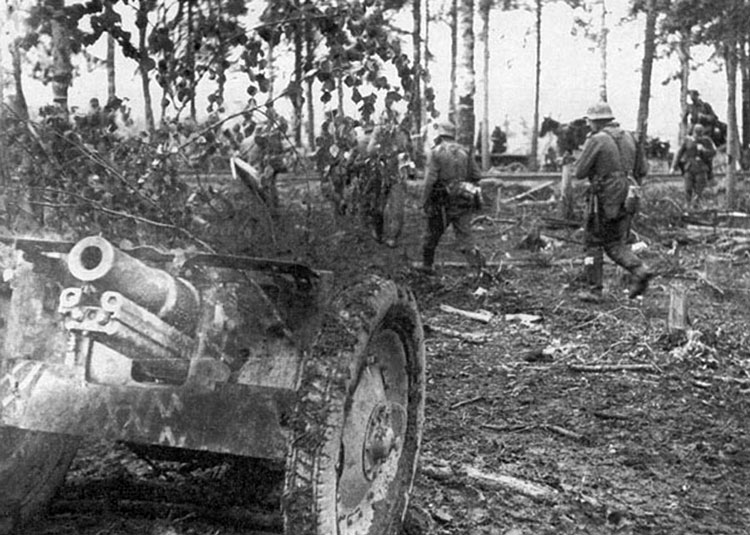
Weaponry and all kinds of equipment were destroyed or abandoned.
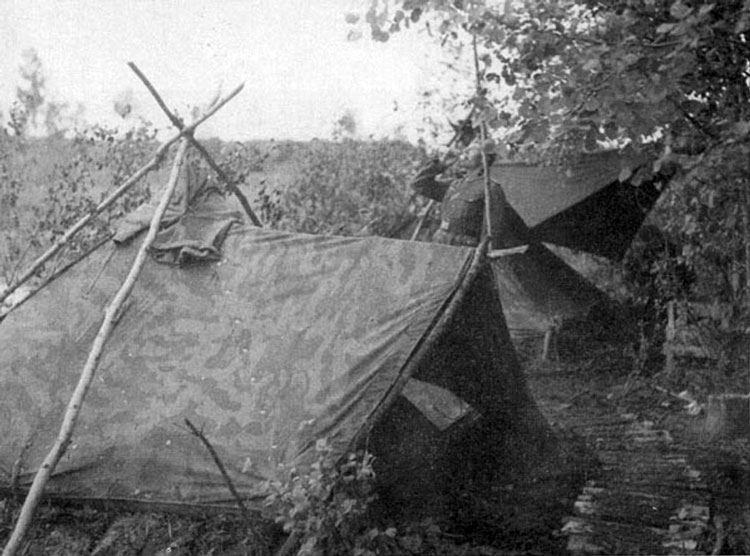
Tens and wooden pathway in the swampy area near Volchov, 1942,
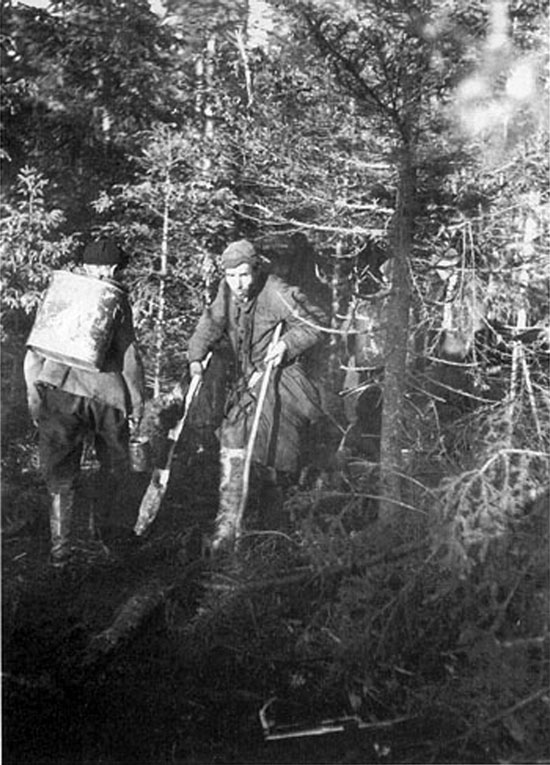
Food supply detachment met with the wounded Russian soldier, 1942.
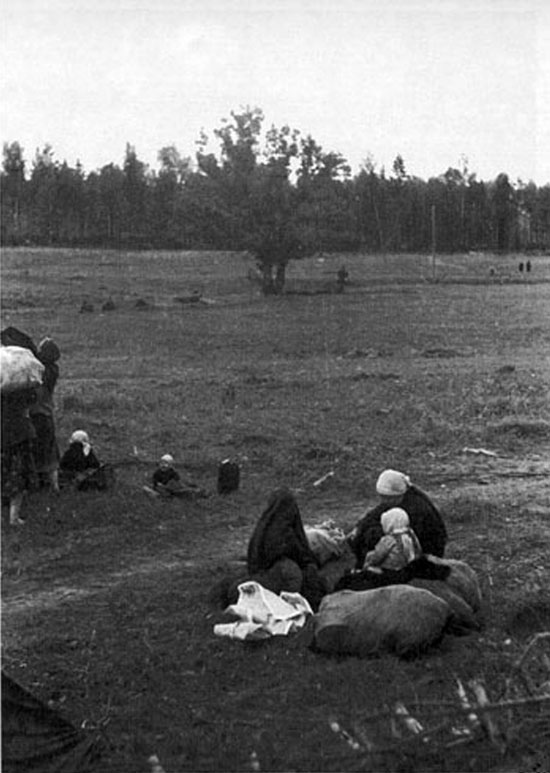
Women with kids on the no-man's land in Volchov area, 1942.
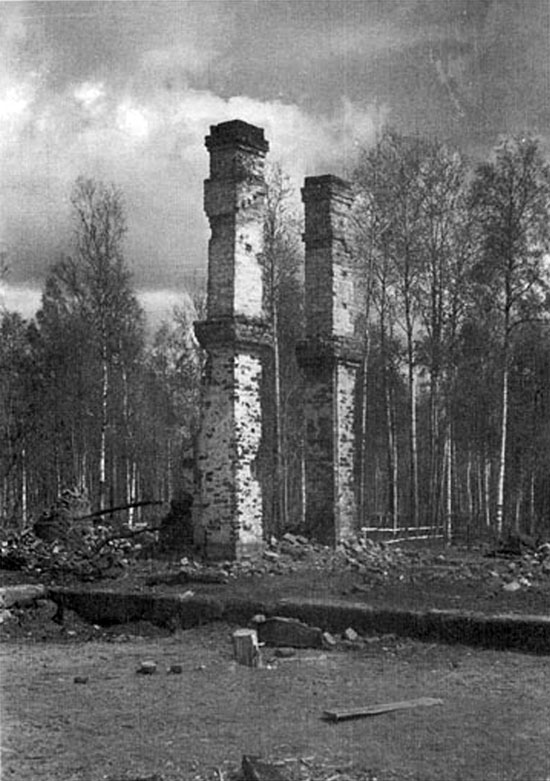
Only chimneys left from a Volchov house.
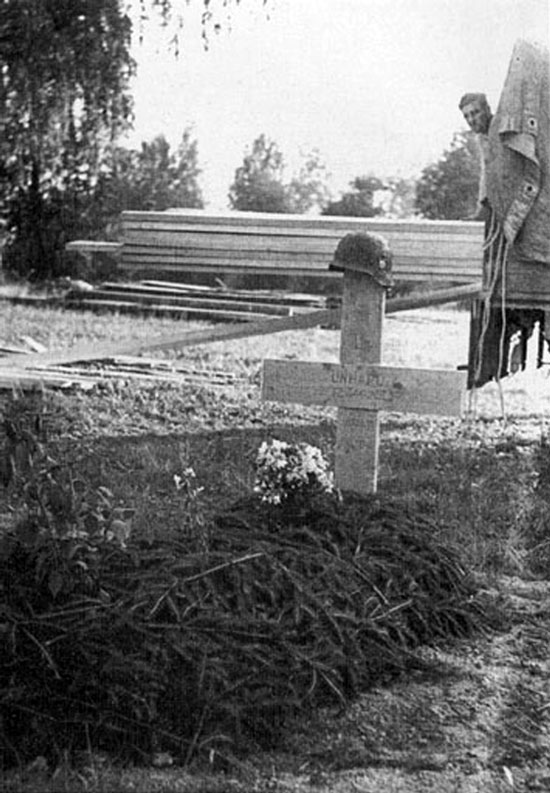
Lonely grave of the Lieutenant Linhard from the anti-tank unit, 1942.
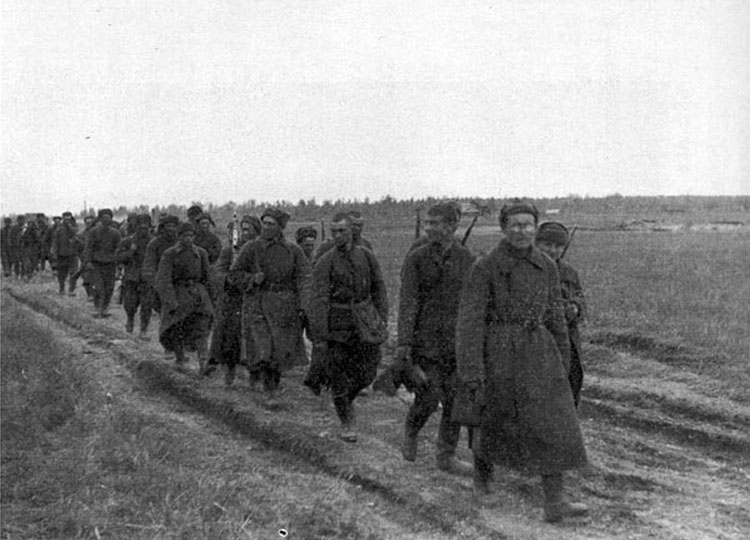
Russian soldiers surrender.
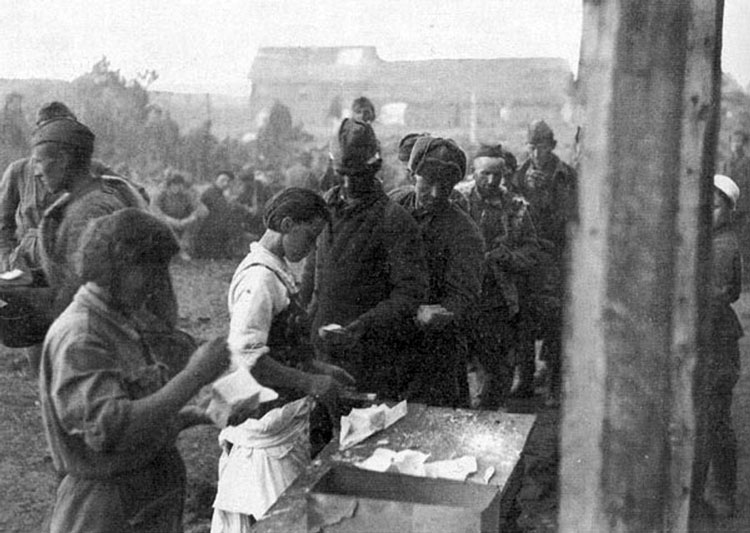
Bread and fat distribution for the Russian soldiers.
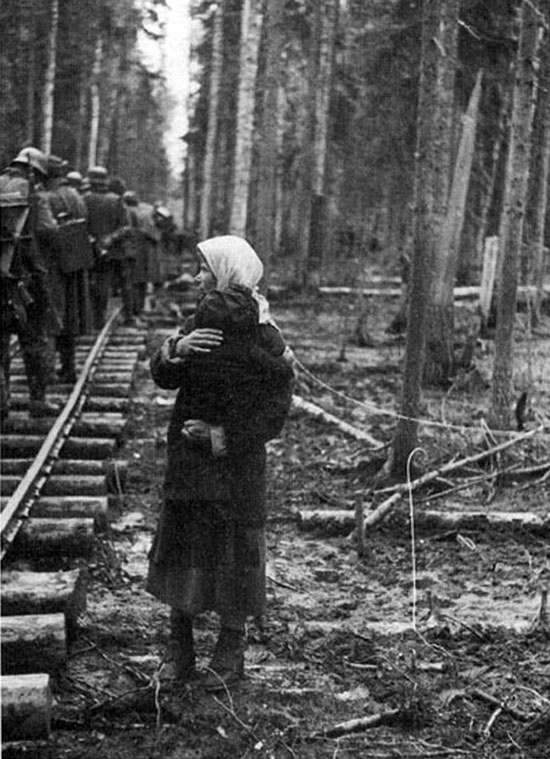
Young woman with her child is standing lonely on the Volchov clearing.
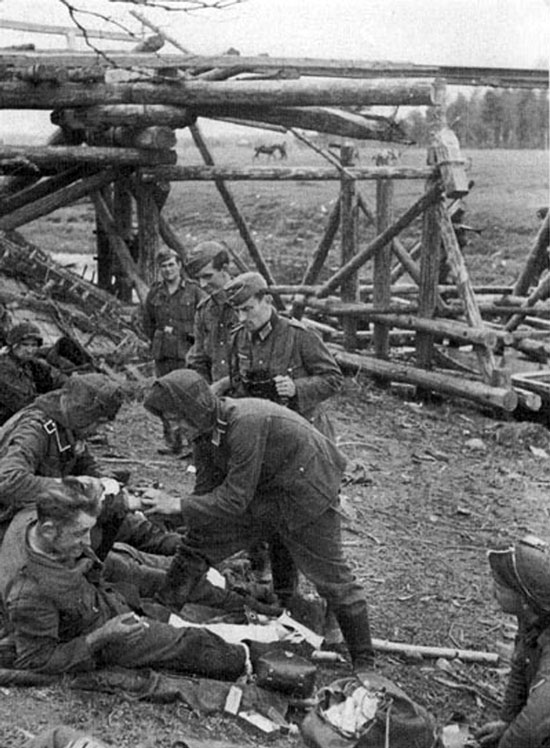
Dressing station III.506 on the Glushitza River, June 1942.
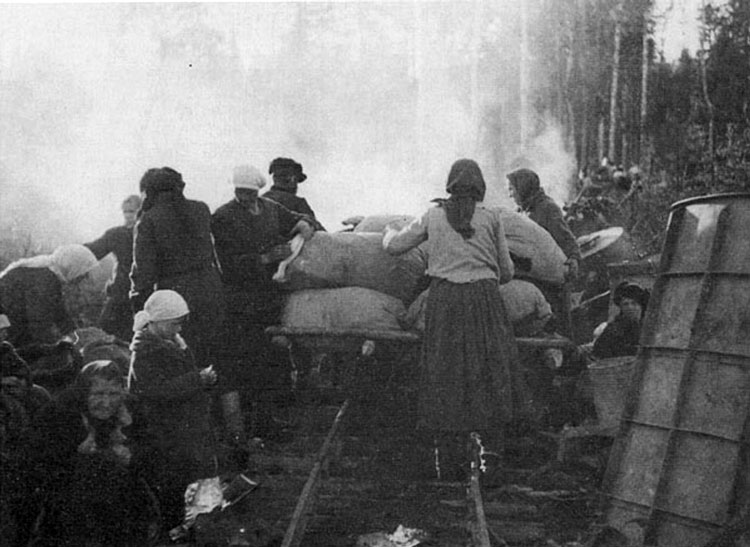
Locals load their belongings on the trolley, Volchov 1942.
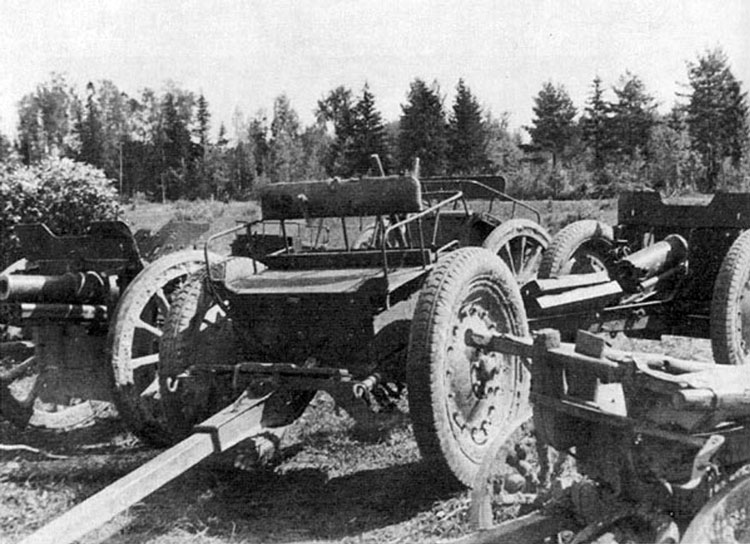
Abandoned Russian guns and carriages.
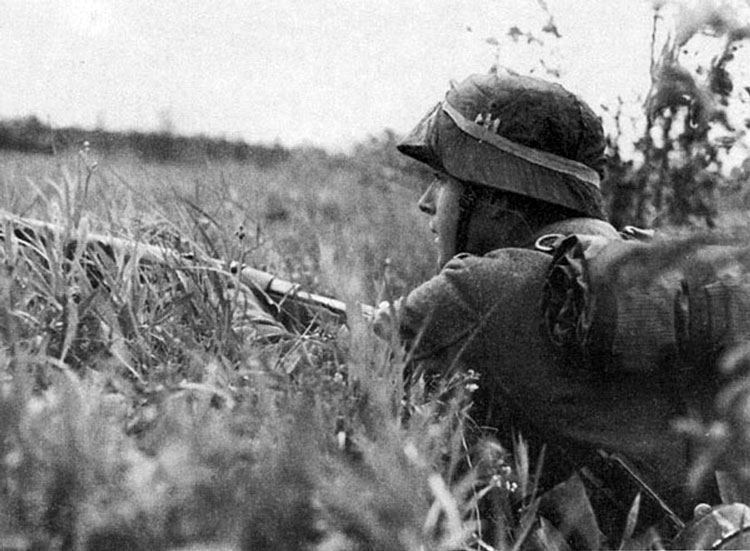
Watching the enemy.
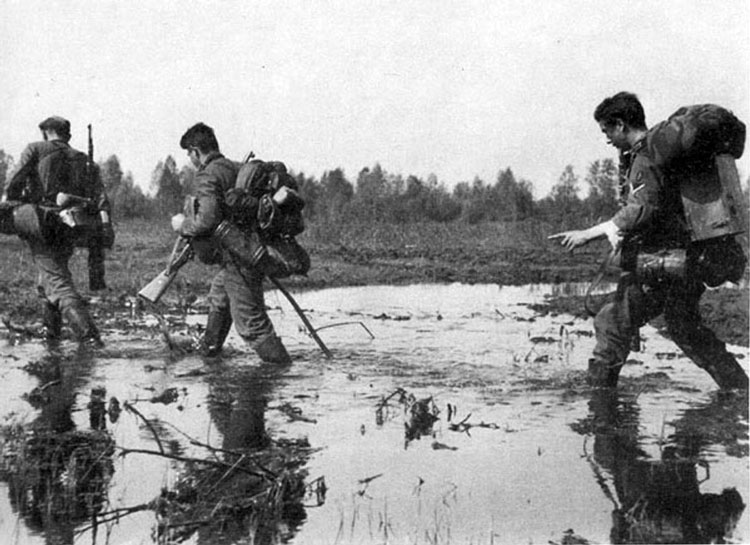
Infantrymen crossing the swamp. May 1942.
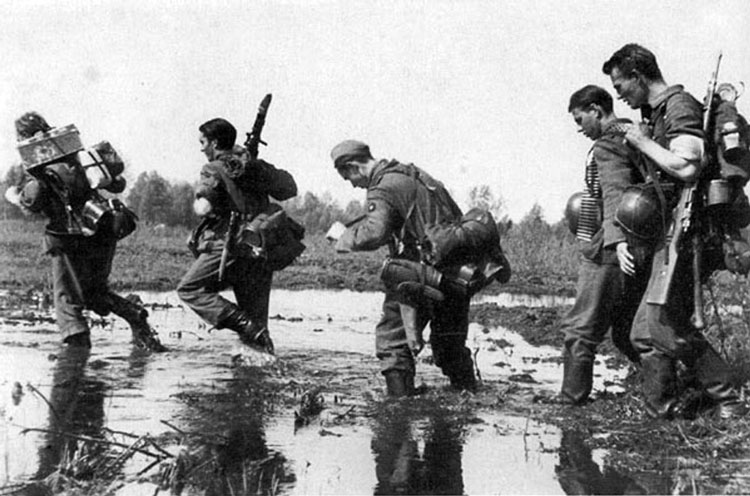
Infantrymen of II/506 crossing the swamp.
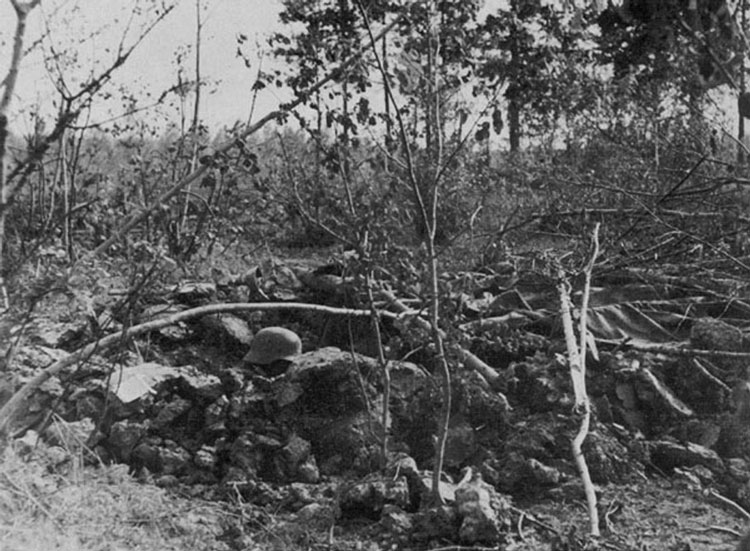
Camouflaged position in Volchov Pocket, 1942.
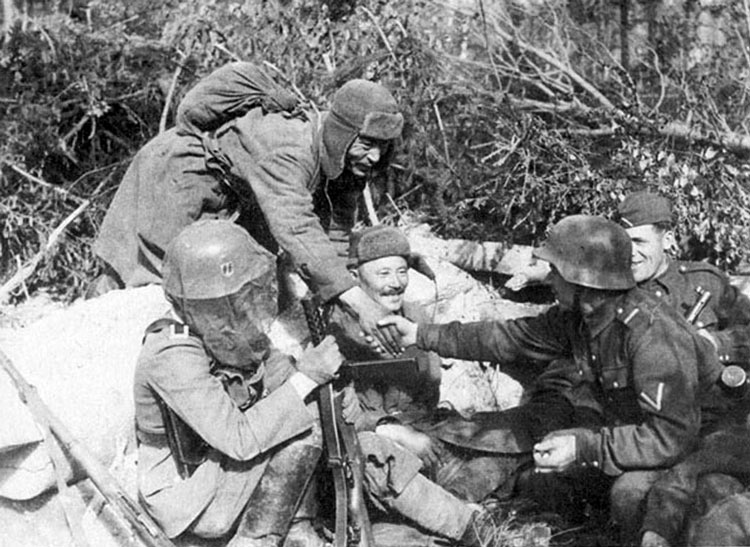
Captured Russian soldiers.
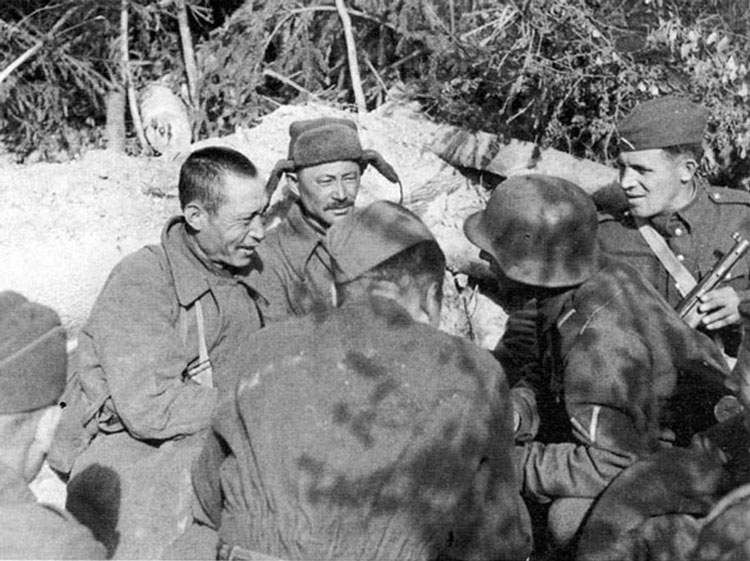
POWs on the first interrogation.
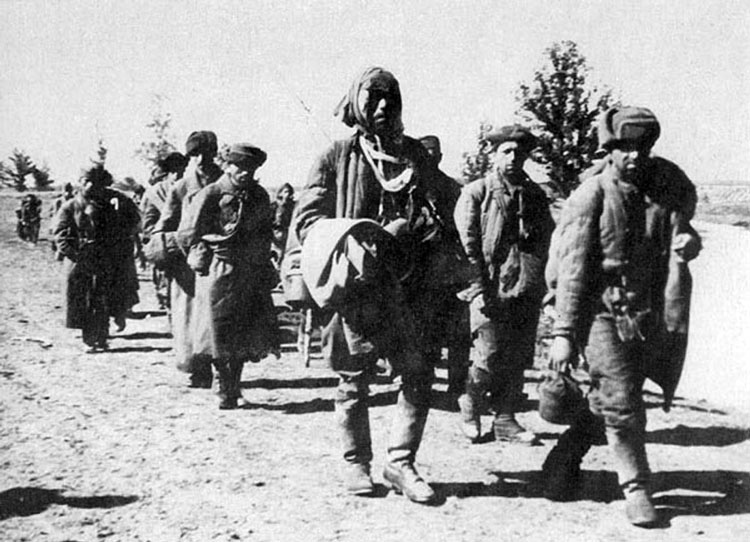
Russian POW, captured in Volchov Pocket, June 1942.
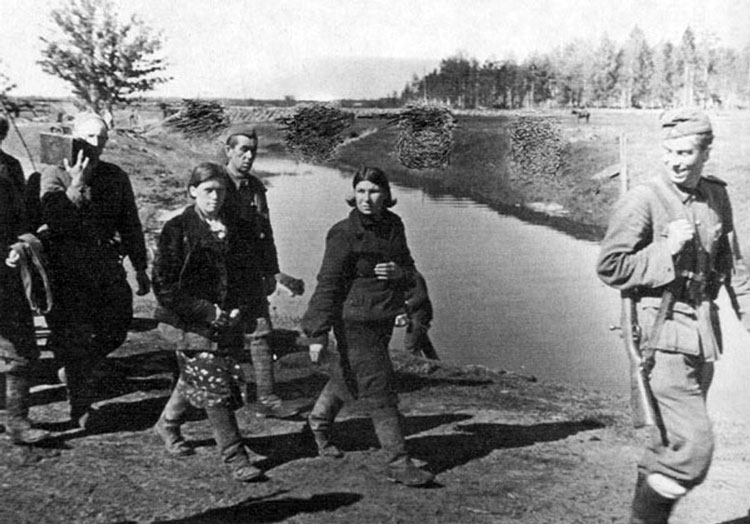
Captured Russian women.
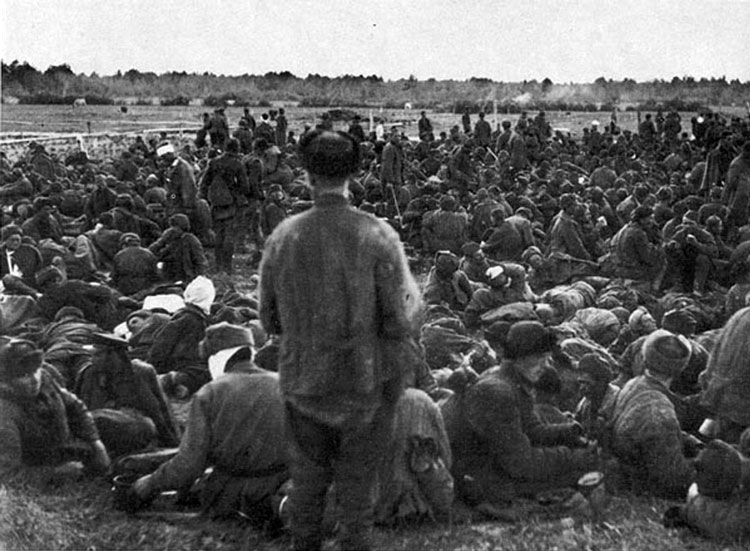
Thousand Russian POWs, captured in the Volchov Pocket, 1942.
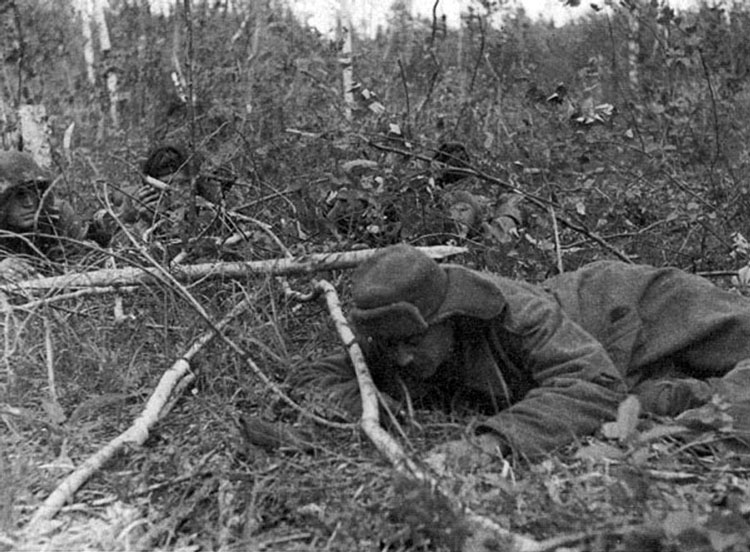
Deserter. Volchov pocket, 1942.
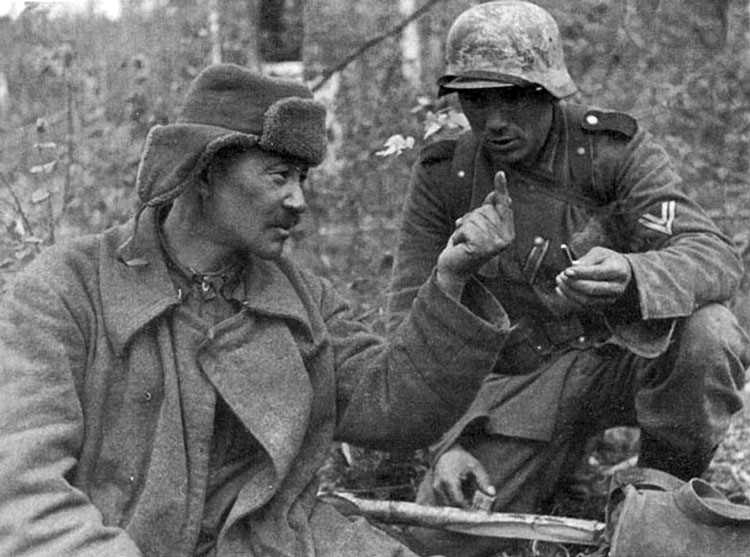
Captured Kazakh shows the size of the soldier's ration.
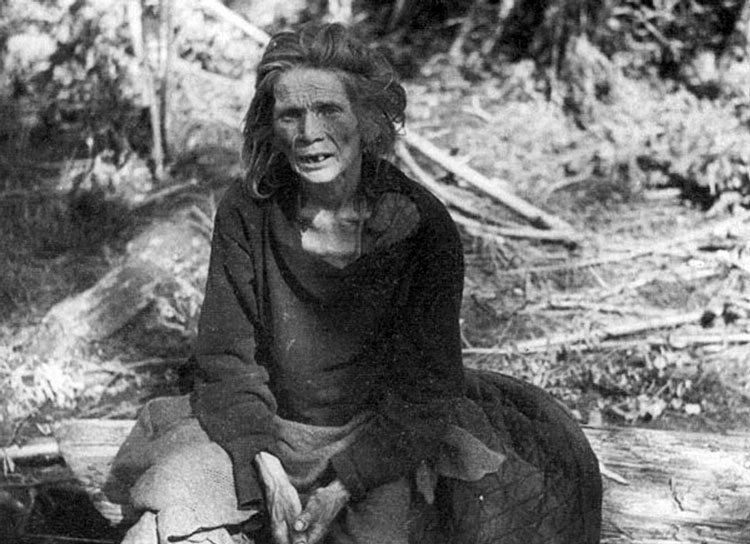
Hunger and poverty on the face of this woman, Volchov pocket, 1942.
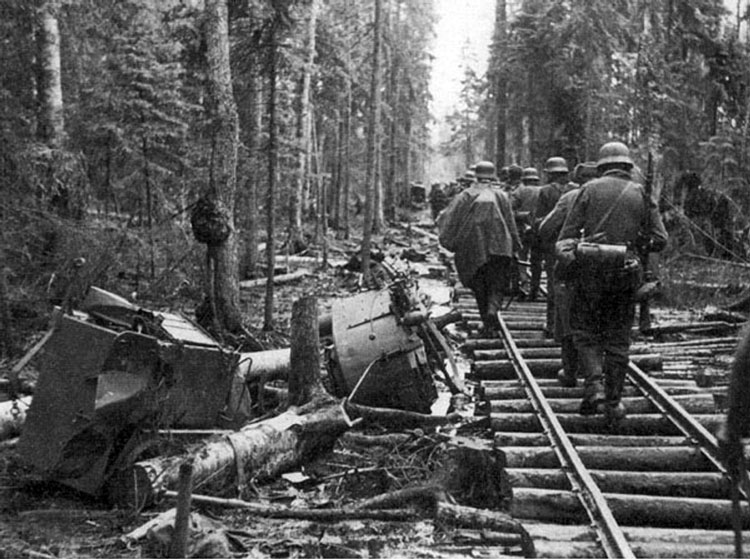
Moving along the famous "Erika" line in the Volchov swamps.
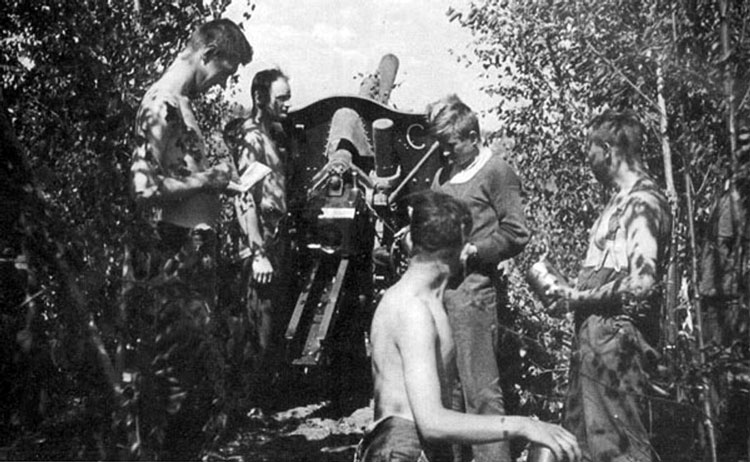
German 105 mm gun in position, Volchov area, June 1942.
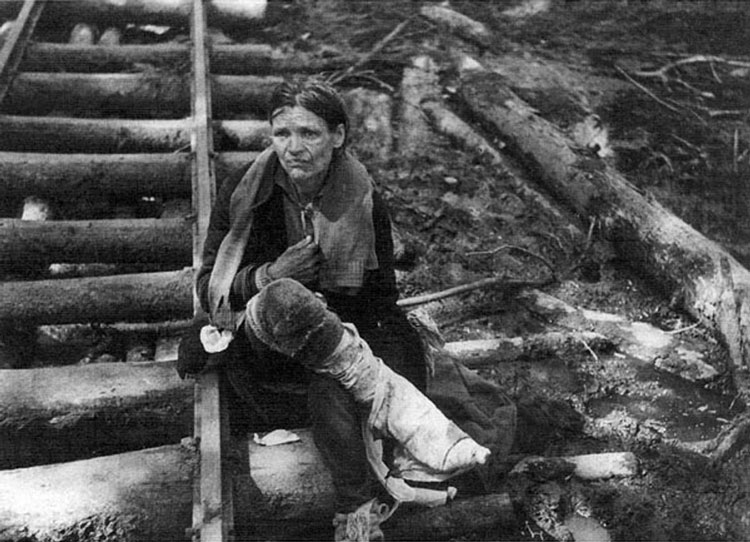
This wounded and abandoned woman was waiting for help for many days, until she was rescued by the Germans.
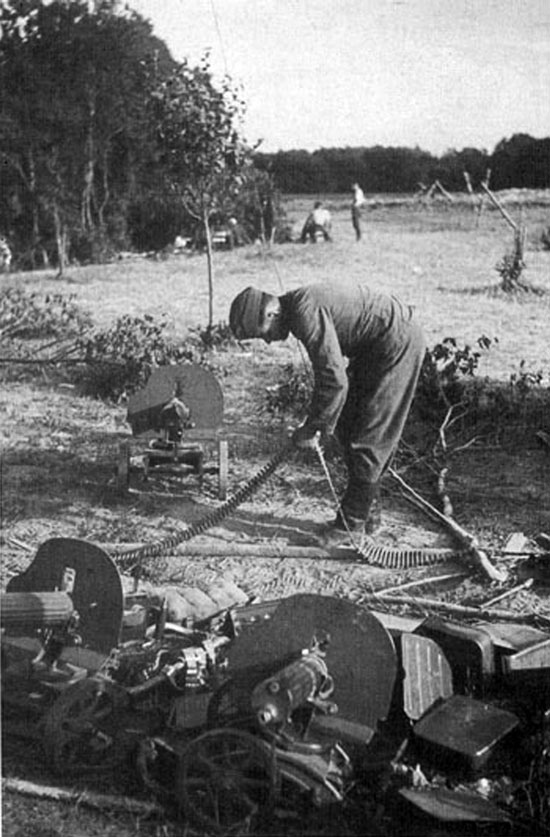
Captured Russian machine guns.
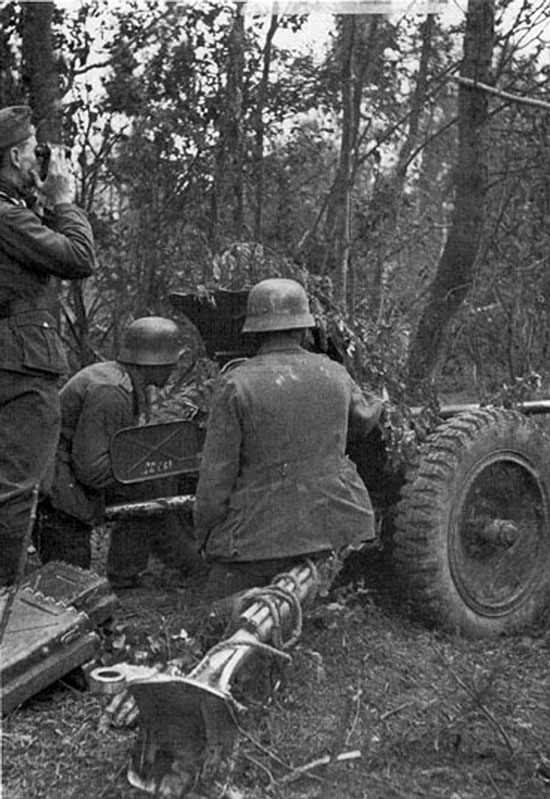
3.7 cm anti-tank gun points at the forest clearing.
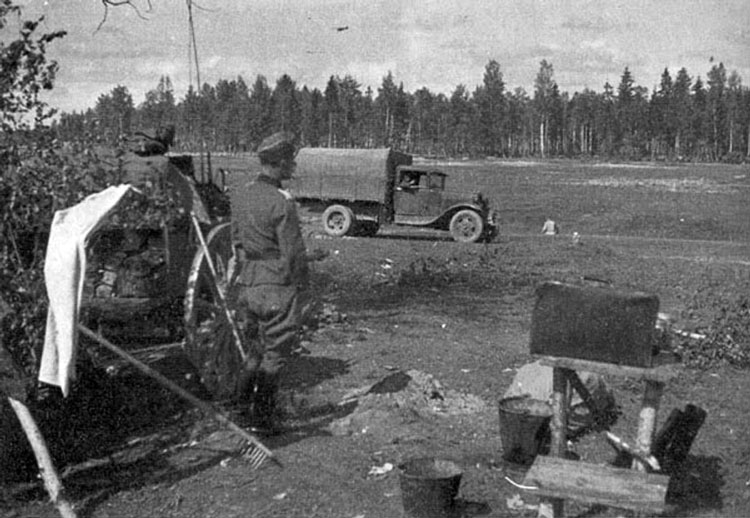
Lieutenant H. Schuster looking at the edge of the Volchov forest, Glushitza River is behind the truck.
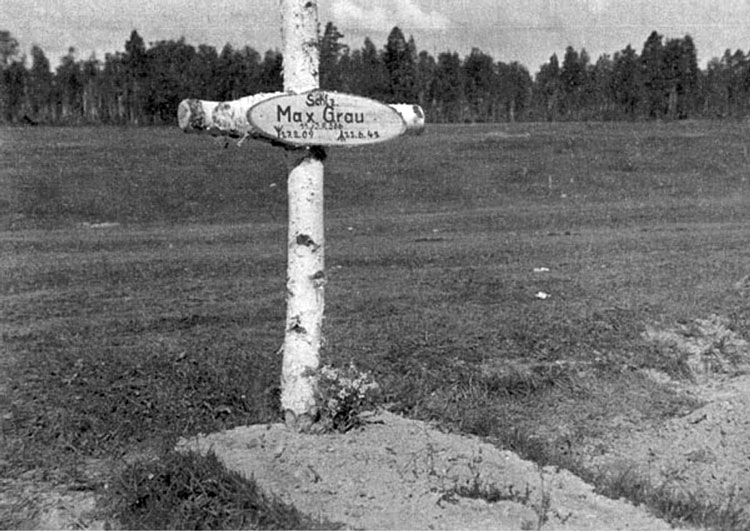
Grave of the rifleman Grau, KIA in June 1942.
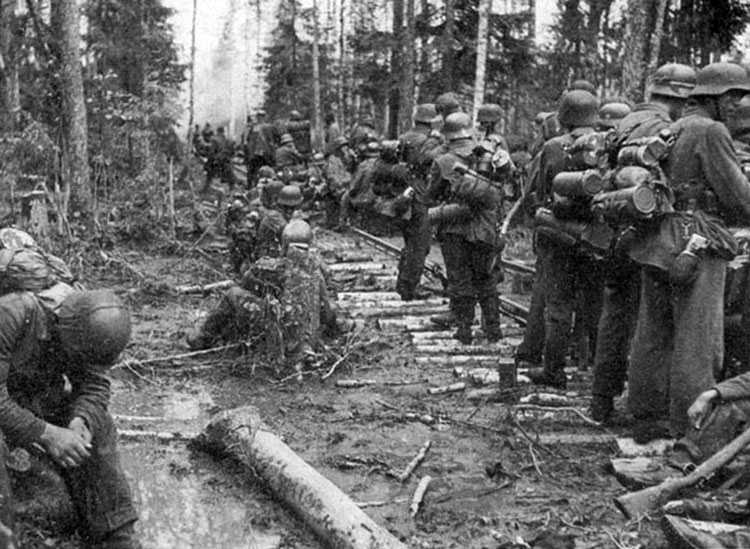
Preparing to march along the "Erika" line in the ancient Volchov forests.
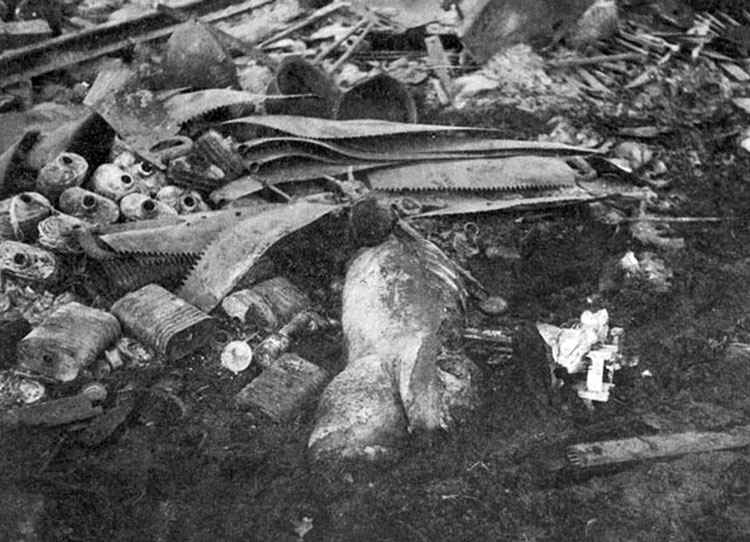
Remains of a soldier, Volchov Pocket, 1942.
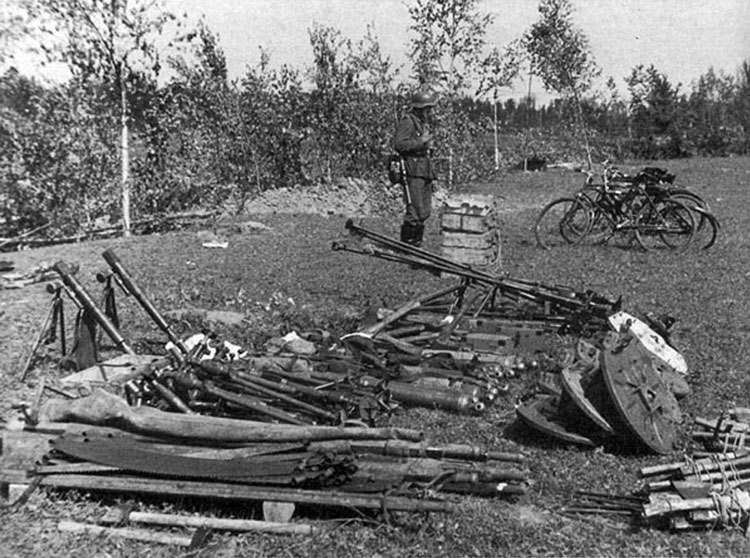
Captured Russian trophies: ammunition, mortars, anti-tank rifles, saws and instruments, June 1942.
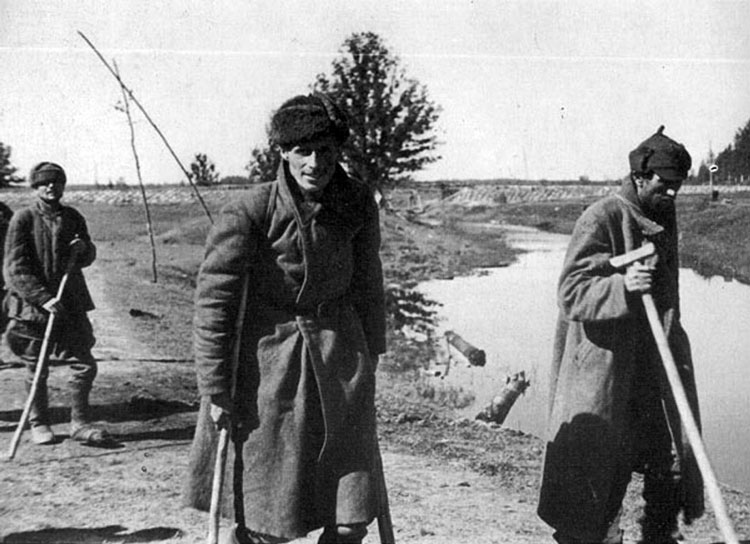
Wounded Russian soldiers, Volchov 1942.
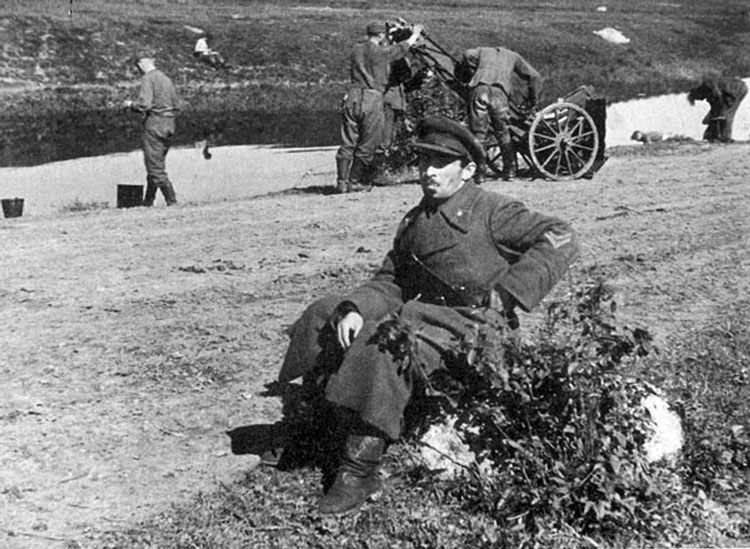
Captured Soviet officer near Glushitza River.
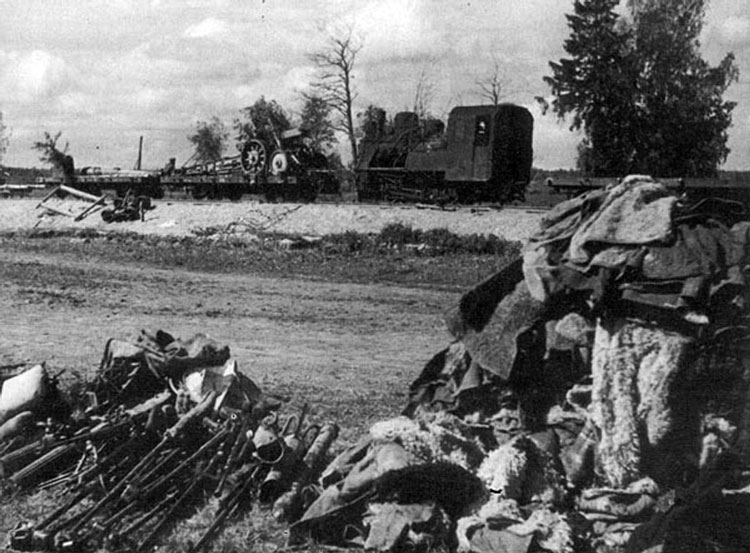
Supply train with clothes and ammo captured in Volchov Pocket.
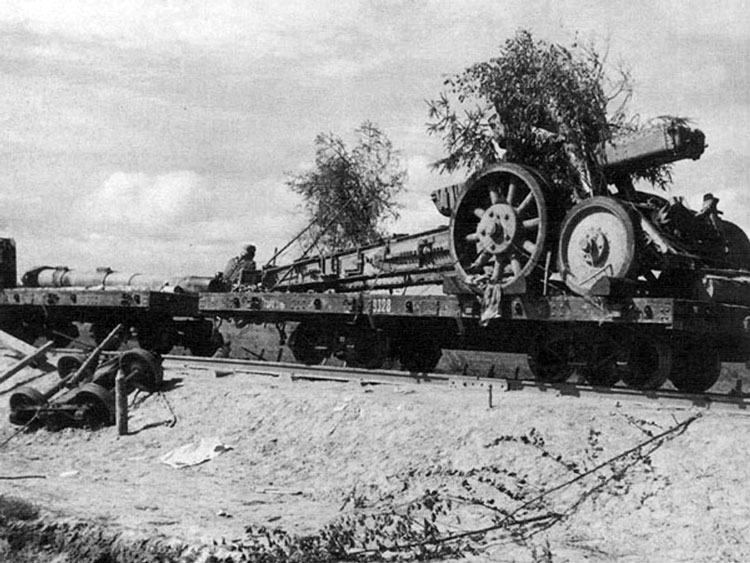
Heavy Russian gun, trophy of the battle for the Volchov Pocket.
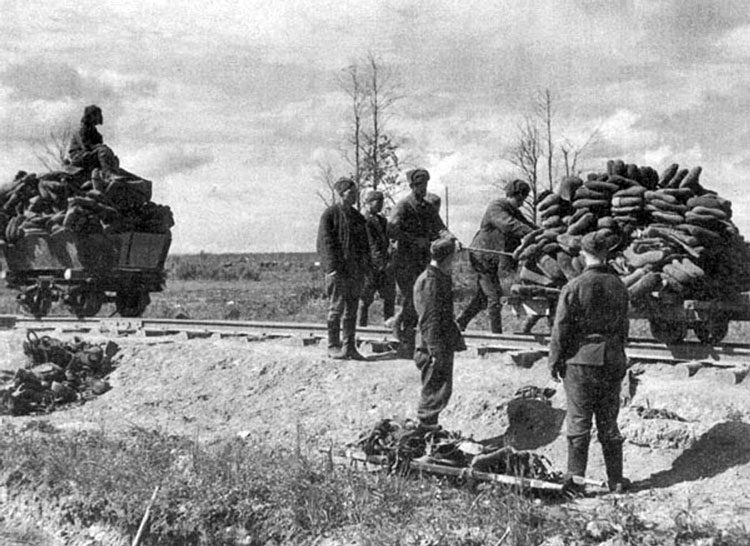
Snow boots on the trolleys.
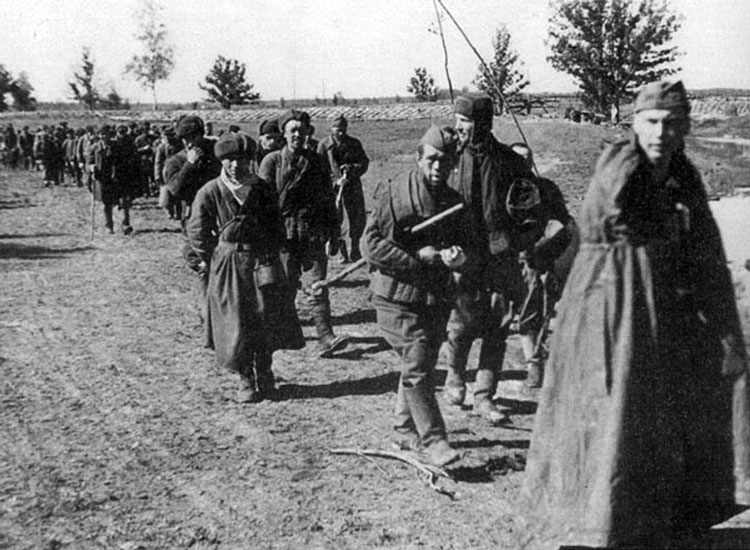
Captured Soviet soldiers march to the POW camp, June 1942.
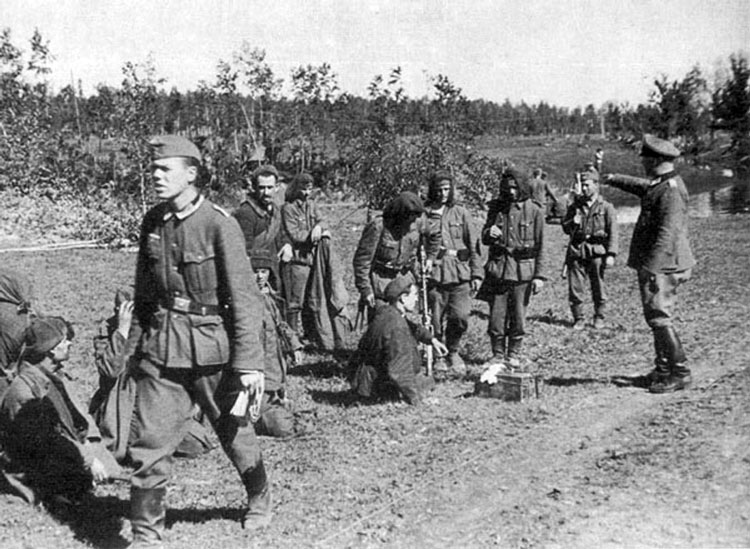
Arriving POWs near Glushitza River, 1942.
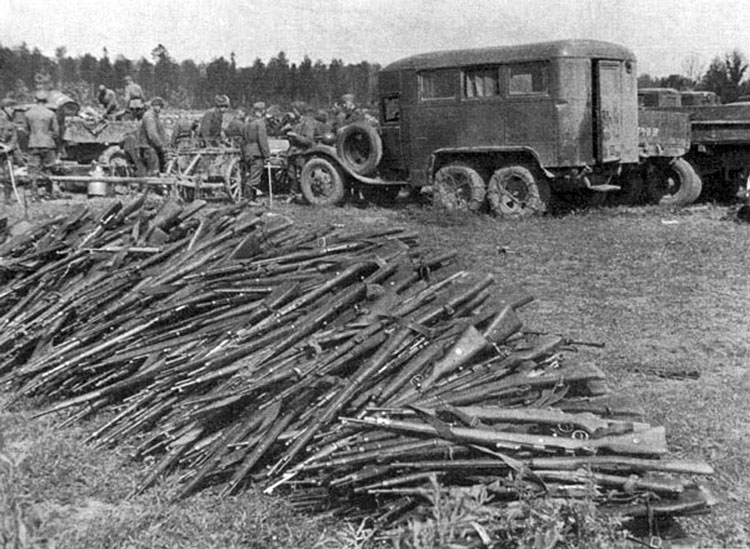
Trophies from the Volchov Pocket, 1942.
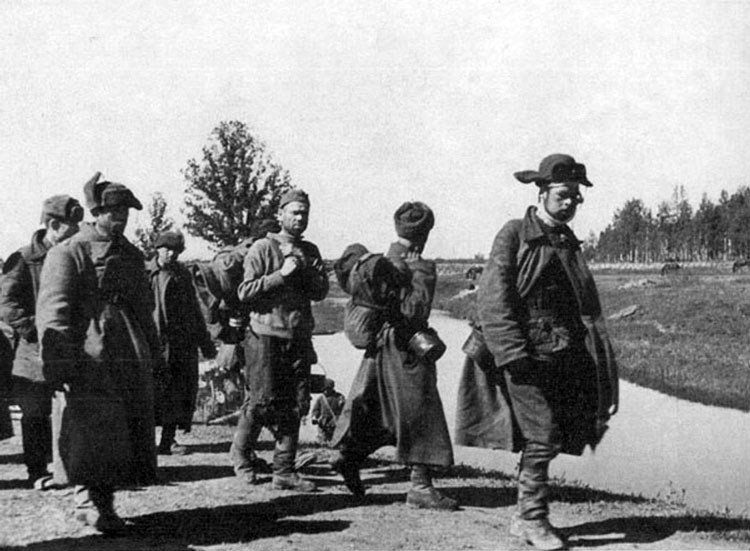
Russian POWs marching to the collection point.
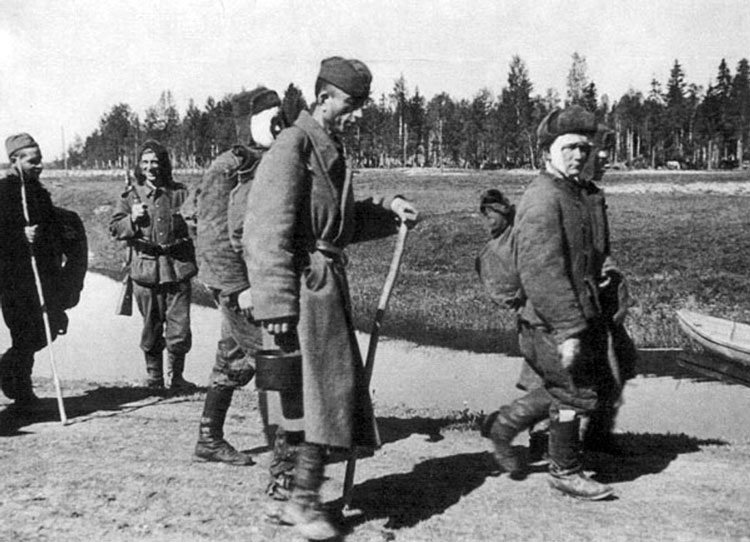
POWs in the Volchov area, 1942.
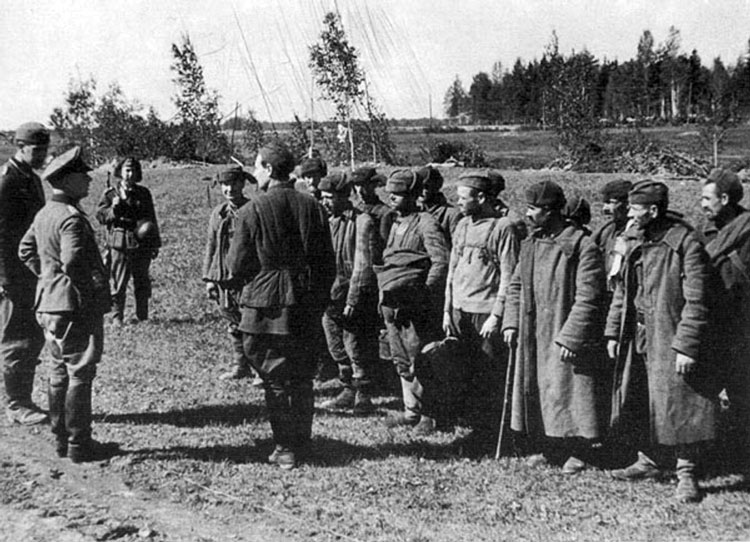
Soviet soldiers are introduced to the German officer.
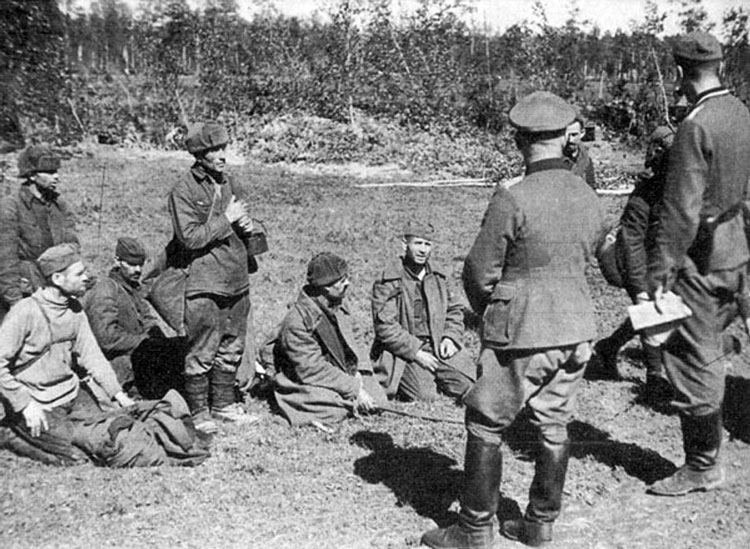
Interrogation of the Russian POWs, June 1942.
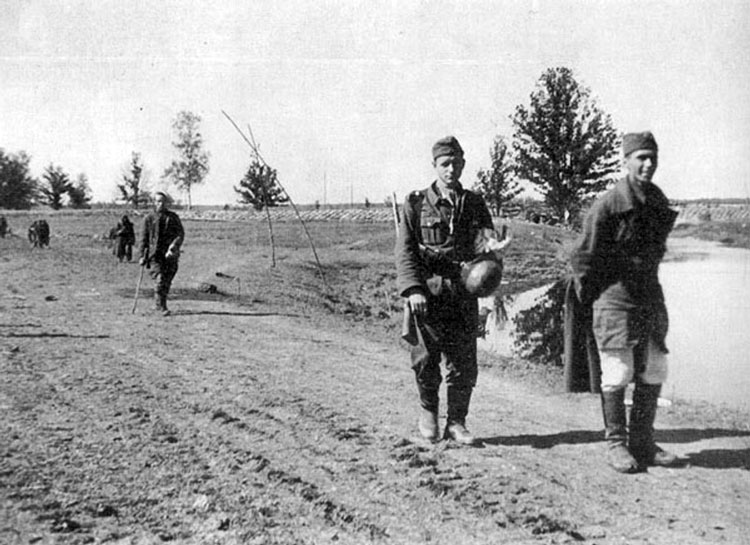
Wounded Russian soldiers marching to the POW camp.
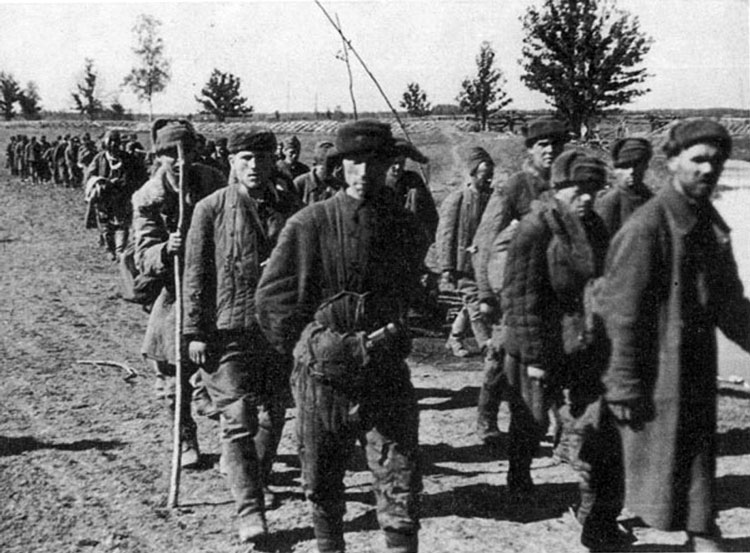
Endless stream of the Russian POWs, captured in the Volchov Pocket, 1942.
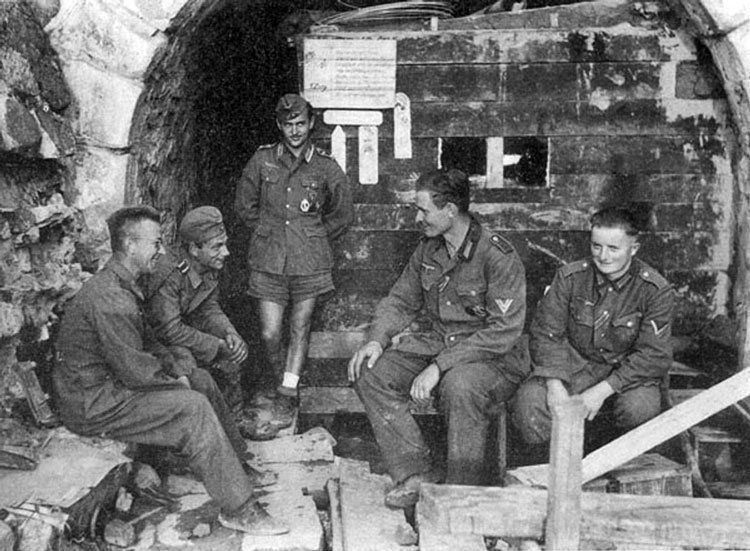
At the company's HQ.
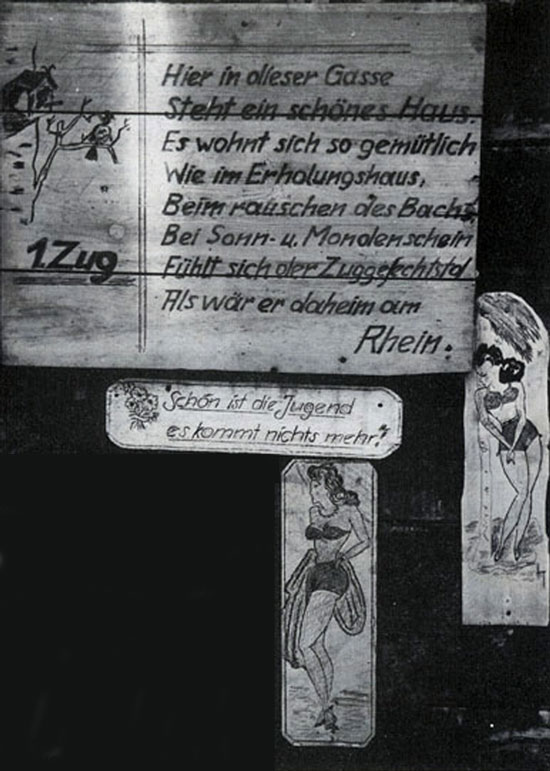
Verse on the company's HQ wall, 1942.
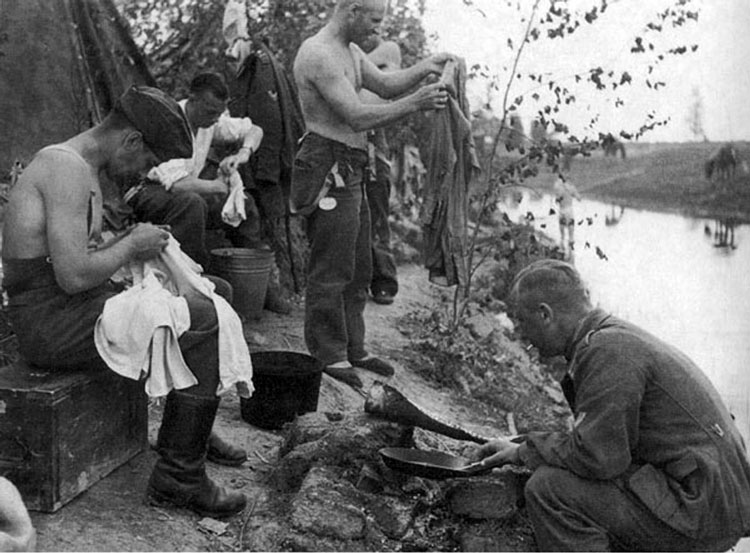
Fighting the louse, Glushitza, 1942.
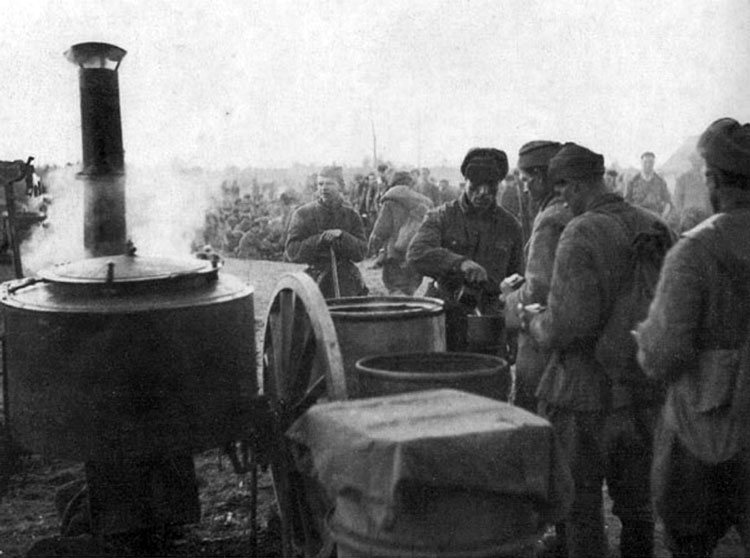
First meal for the Russian POWs after the Volchov Battle,
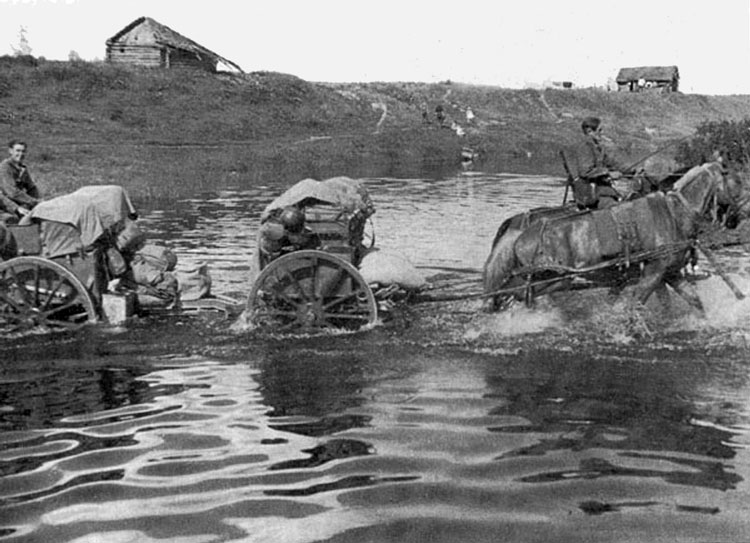
Ammo train crossing Glushitza, 1942.
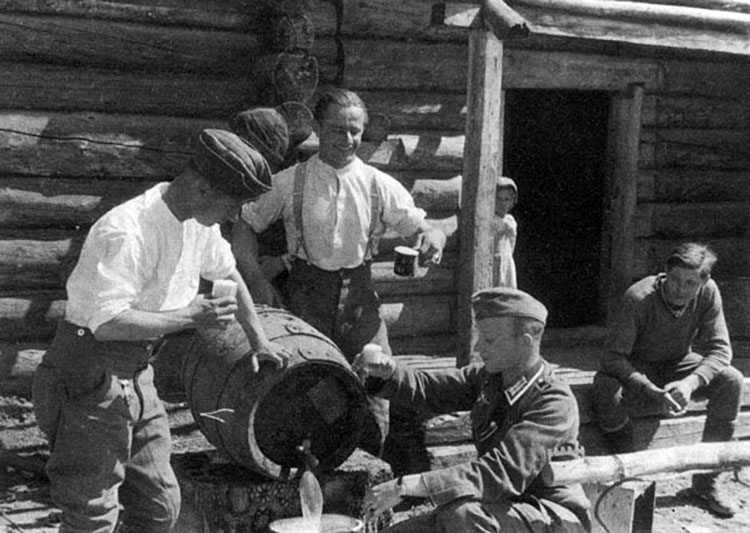
Delicious beer from Germany, for the first time in more than a year.
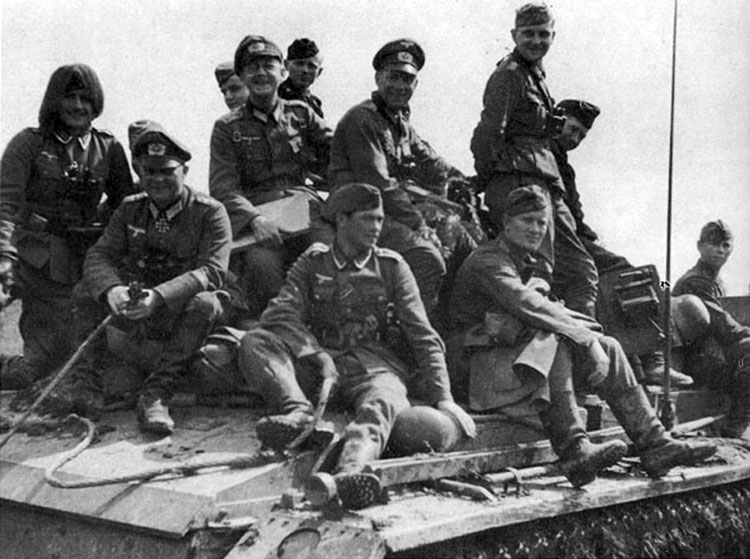
Colonel and his HQ riding on top of the tank, June 1942.
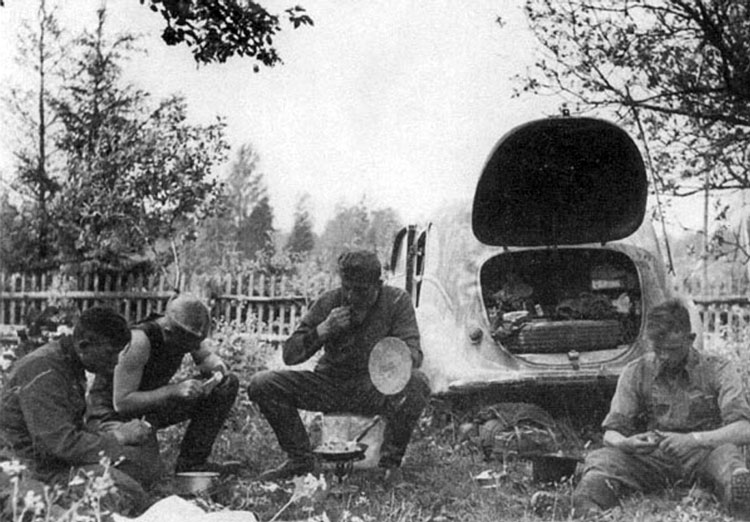
Privates are happy to have a hot meal.
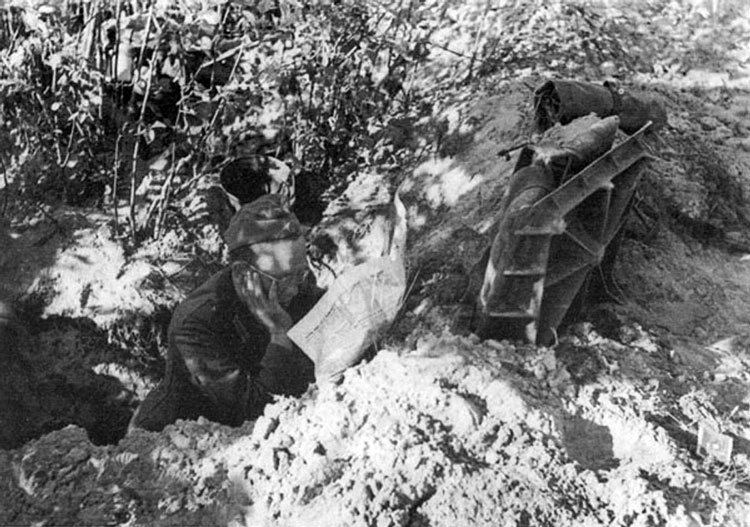
Quiet lunch time on the defense positions.
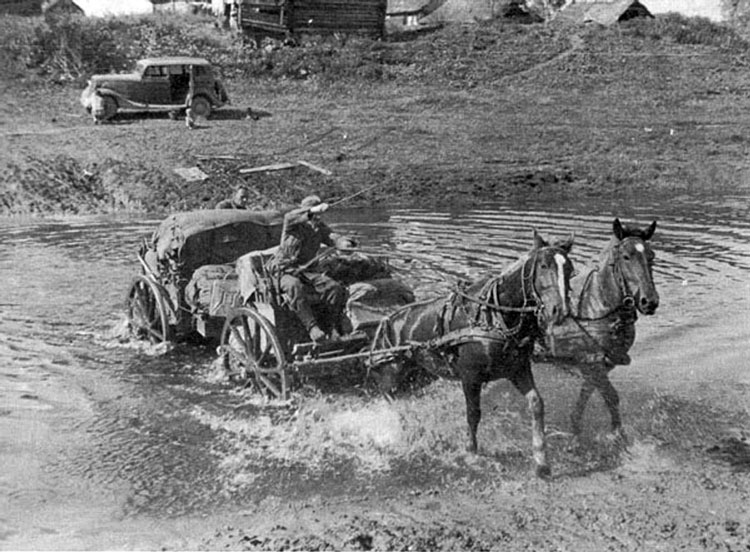
Transporting signal equipment across the river, June 1942.
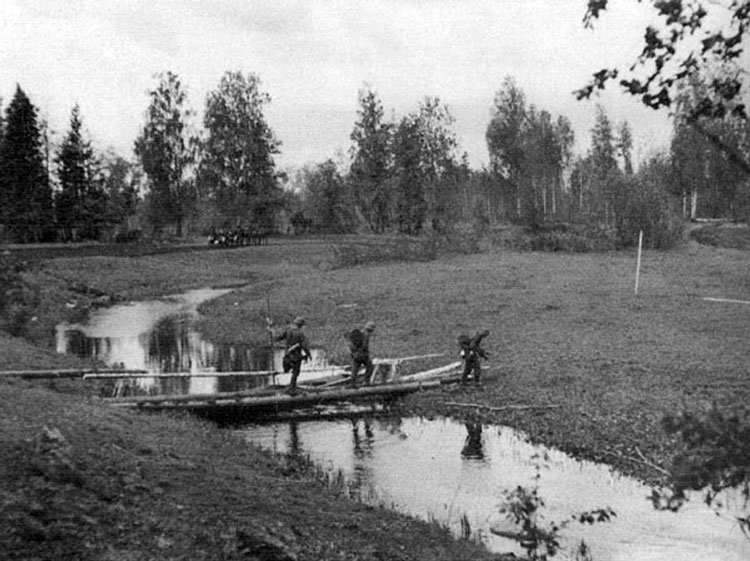
Bridge across Glushitza River, June 1942.
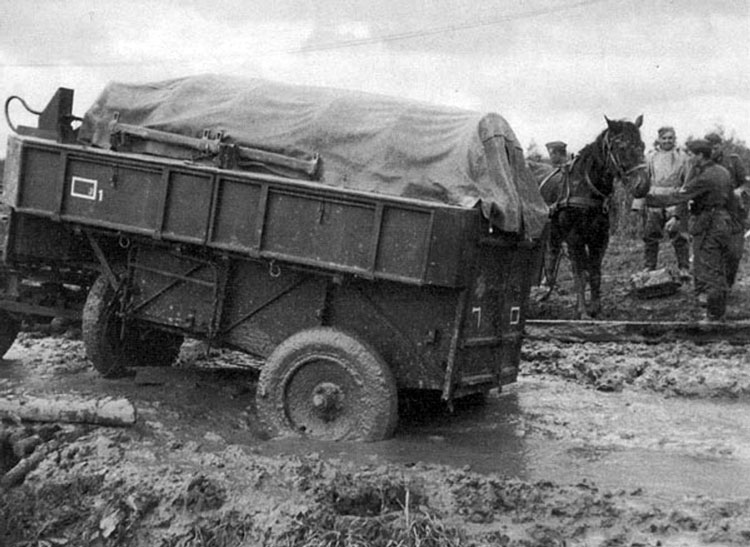
Swampy, flooded roads on the Volchov Front, fall 1942.
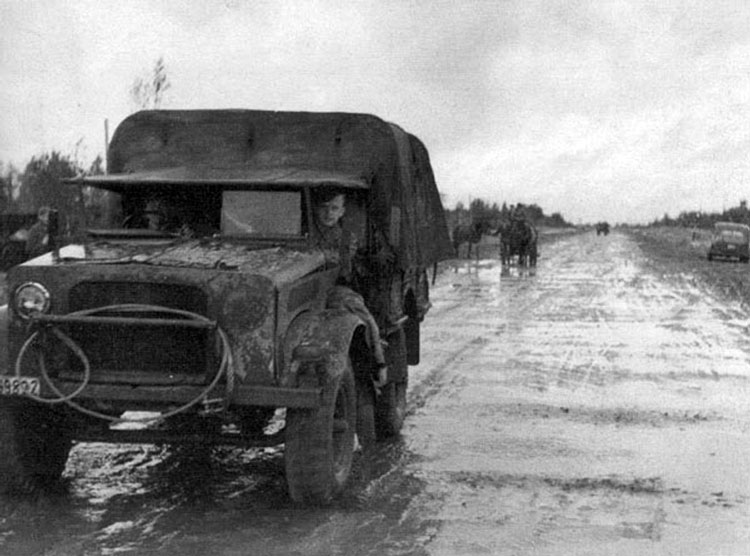
Chudovo-Novosokolniki road, fall 1942.
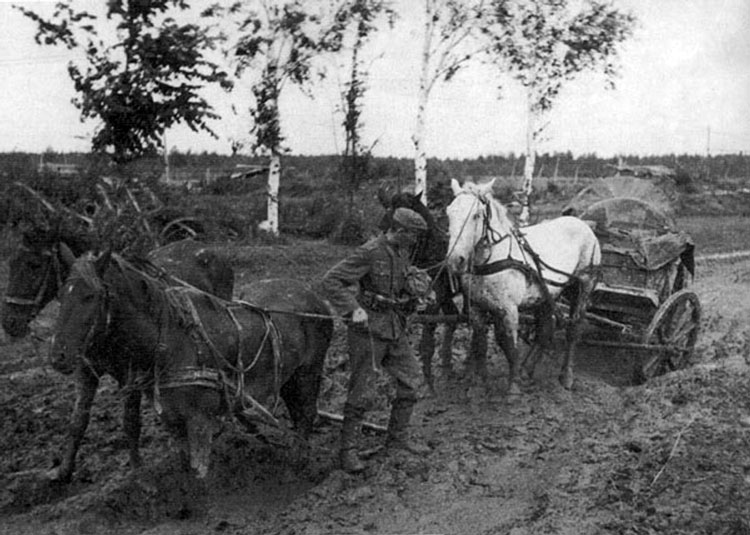
Fall 1942. Even extra horses are not able to help.
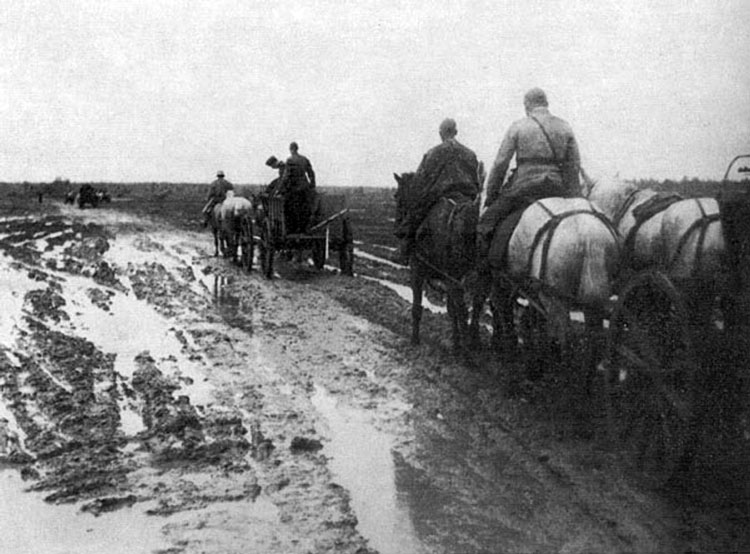
Flooded, muddy supply road near Chudovo, fall 1942.
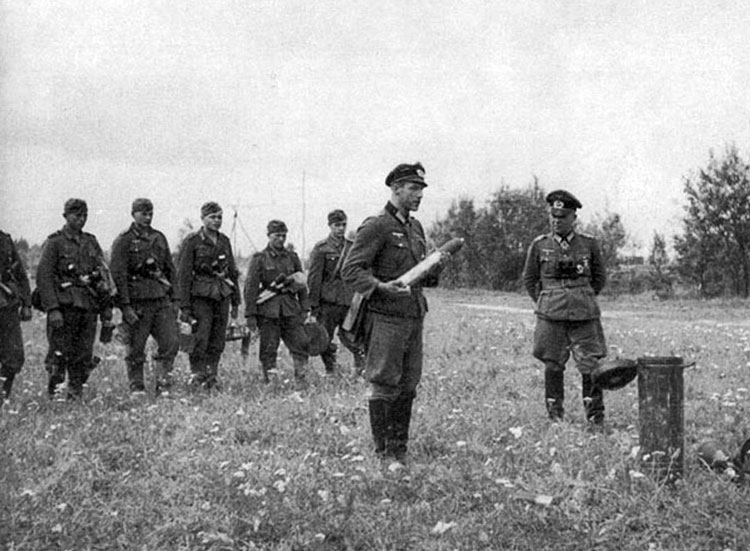
Lieutenant Muller 14./506 demonstrates new antitank shell.
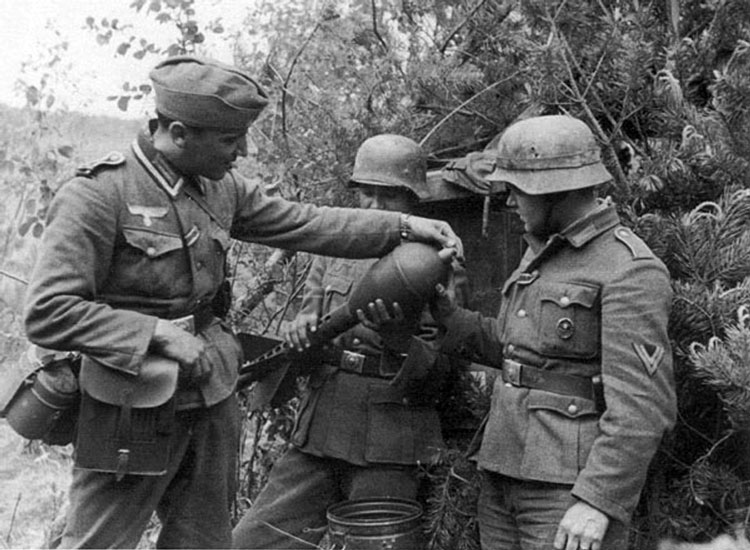
New mine for the mortars.
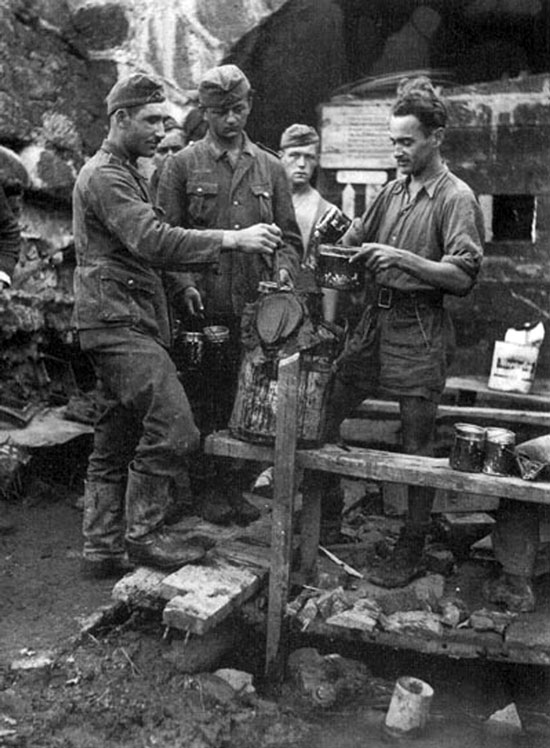
Platoon commander Rappolt distributes rations, 1942.
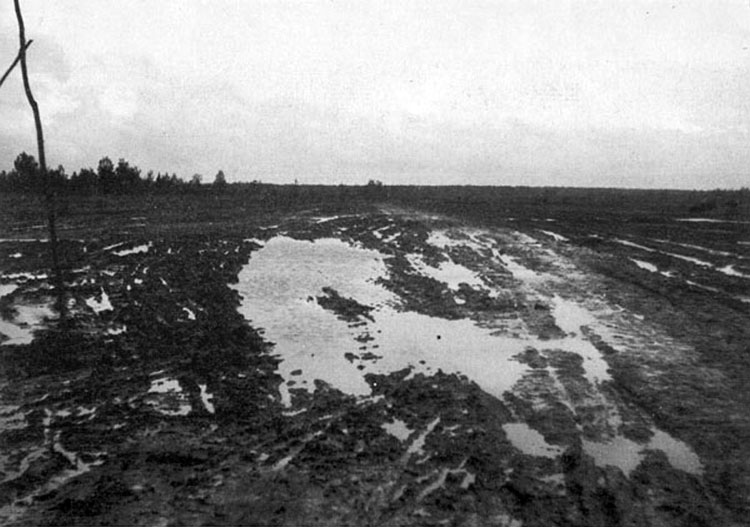
Impassable supply "roads" in Volchov area, 1942.
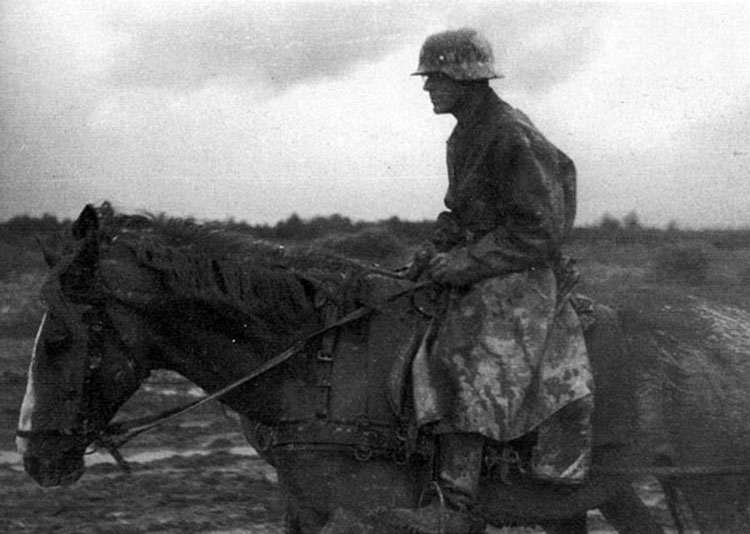
Miserable cold and rainy weather both for the rider and his horse.
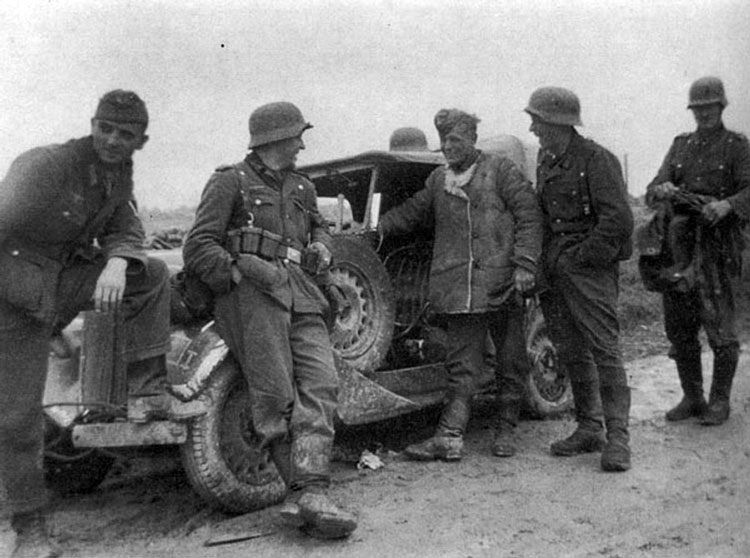
September 1942. Chat with the driver of battalion commander.
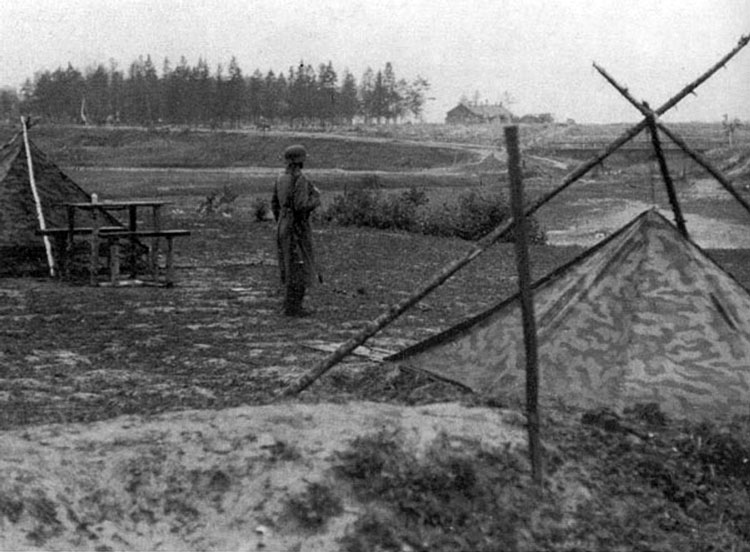
Near Chudovo, August 1942.
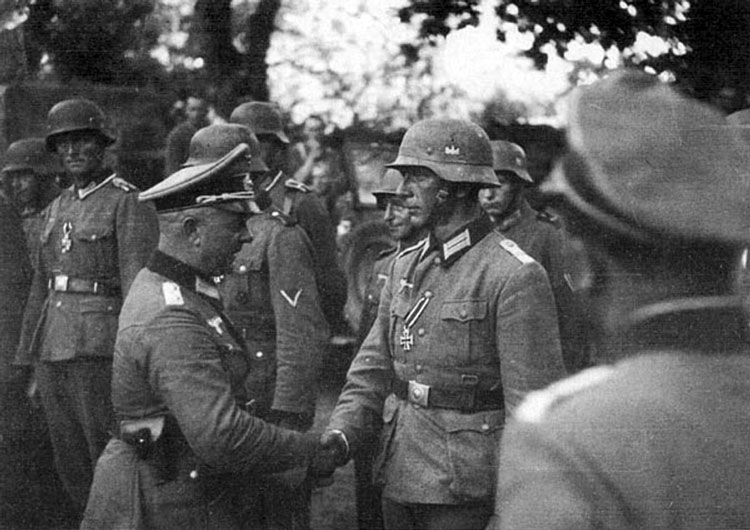
Awards ceremony for the officers and men of Regiment 506.
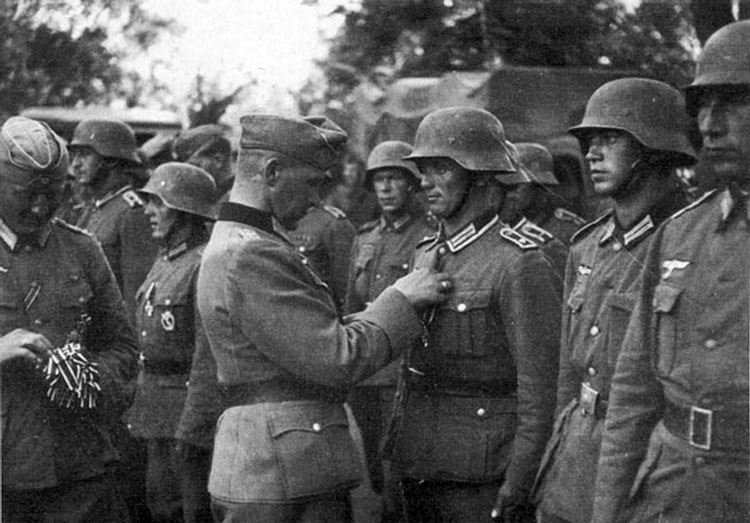
Awards ceremony for the officers and men of Regiment 506.
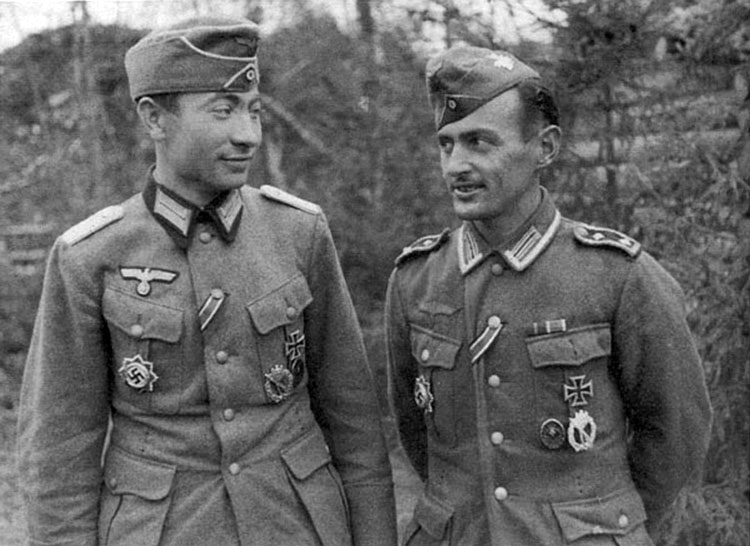
Lieutenant Lux and ober-feldfebel Rappolt, both from 10./506, recipients of the German Cross in Gold,
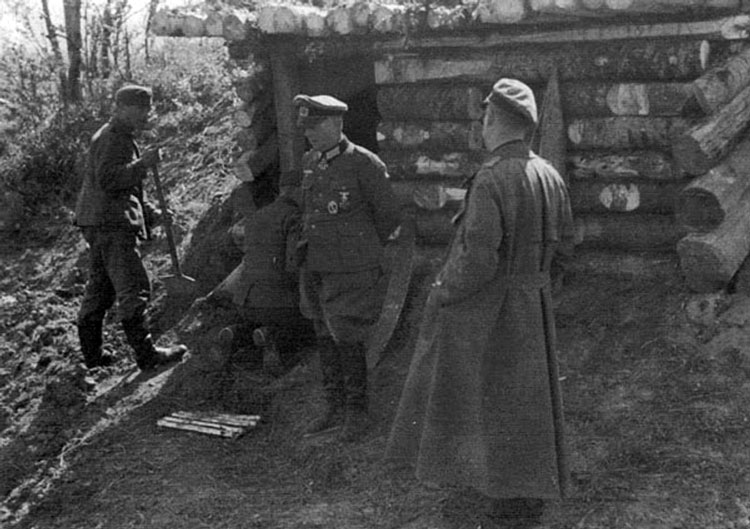
Oberst Gurran, commanding officer of the Regiment 506 near his bunker on the Glushitza River, talking with his aide-de-camp Ober-Lieutenant Tewaag, june 1942.
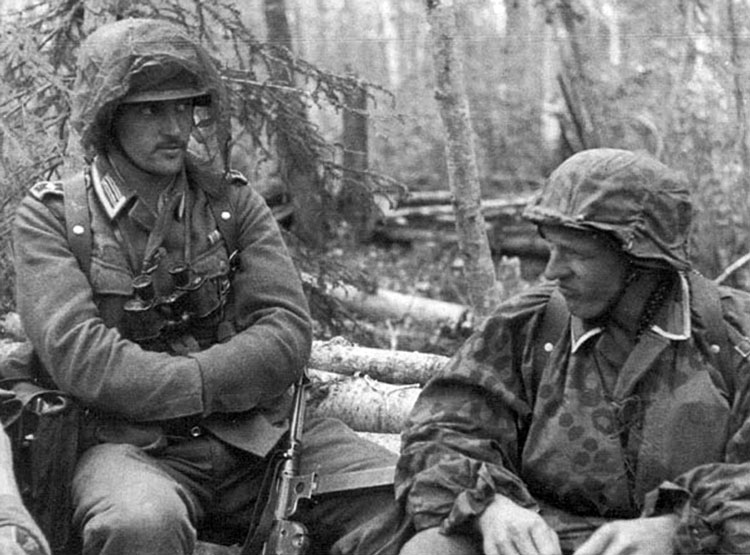
Ober-feldfebel Rappolt, platoon commander 10./506 during the lull, Volchov, 1942.
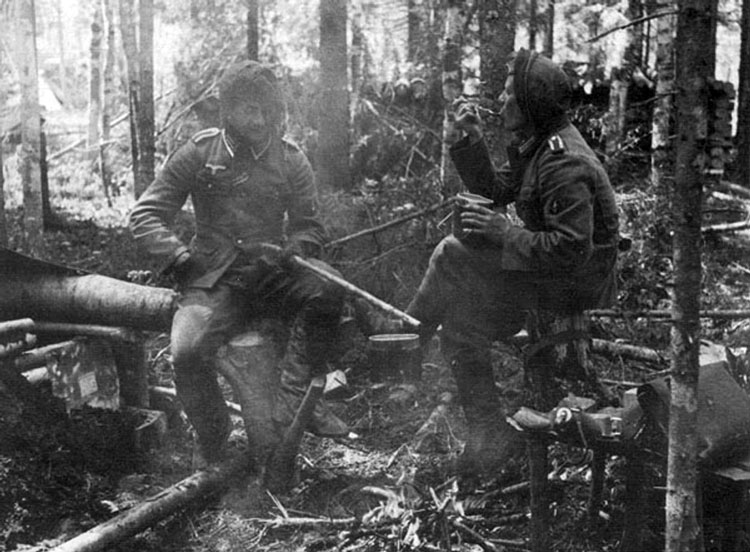
Campfire in the Volchov forest, protection from mosquitoes and hot meal provider.
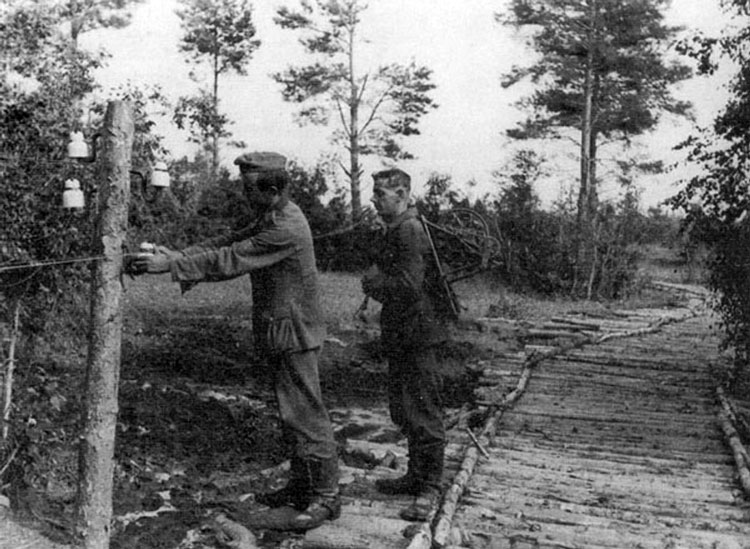
Wooden pathway, leading to the dislocation of the company III./506 .
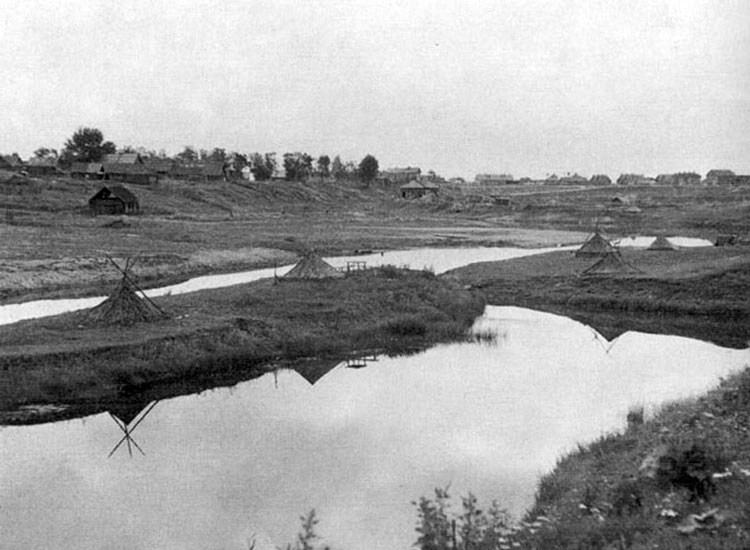
Near Chudovo, north section, August 1942.
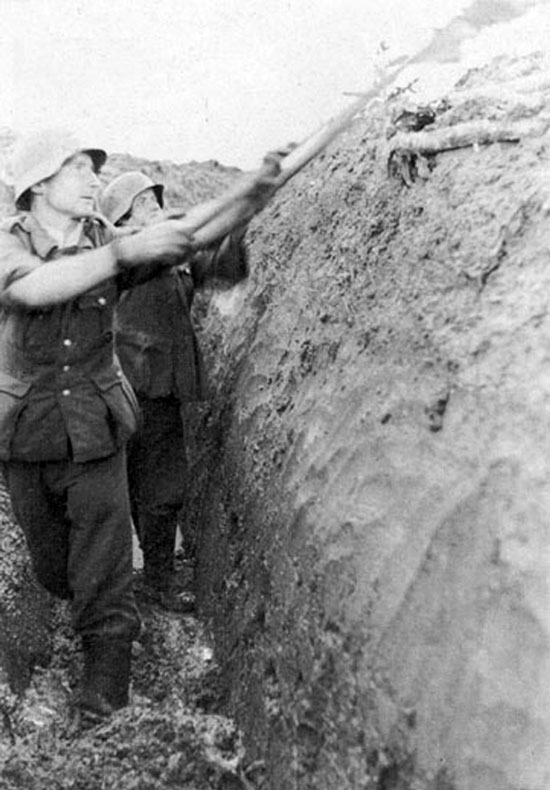
Clearing trenches from the mud.
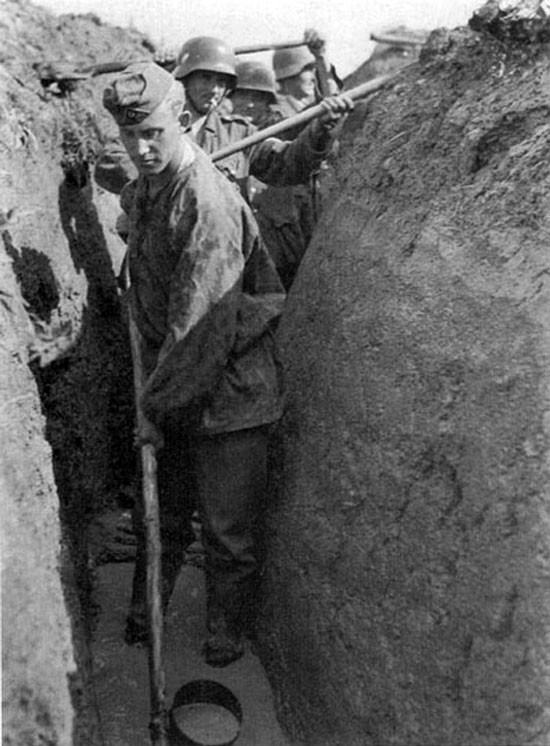
North section, soldiers prevent trenches flooding with great difficulties.
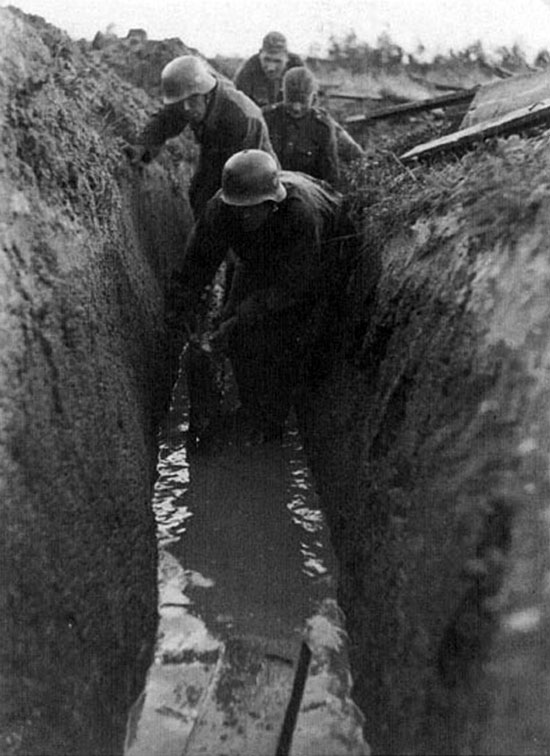
After heavy rains trenches were flooded for days, fall 1942.
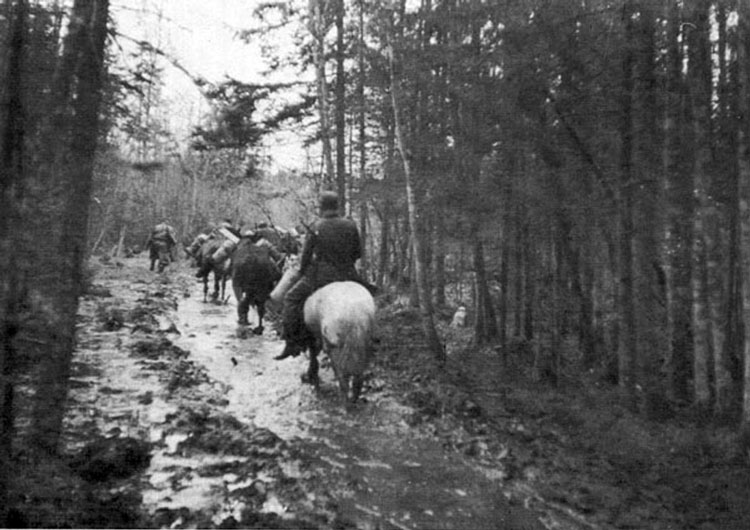
Constant suffering for men and horses on the muddy roads in Volchov forests, 1942.
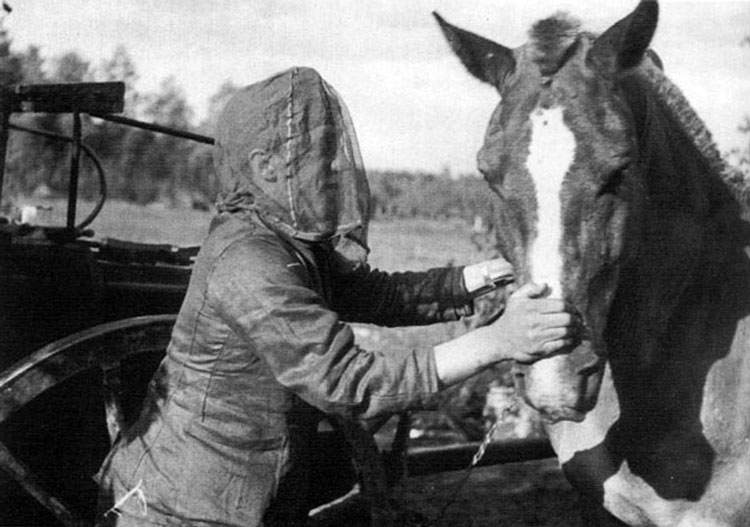
Kaptenarmus established good relations with his horse.
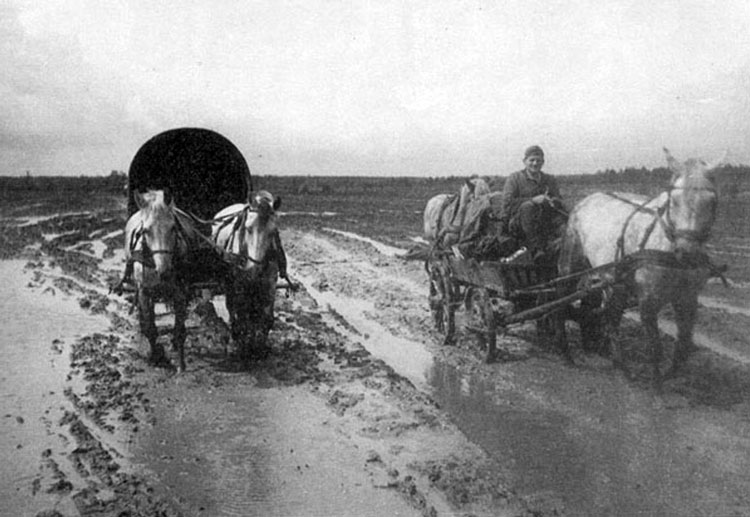
Roads in mud season, fall 1942.
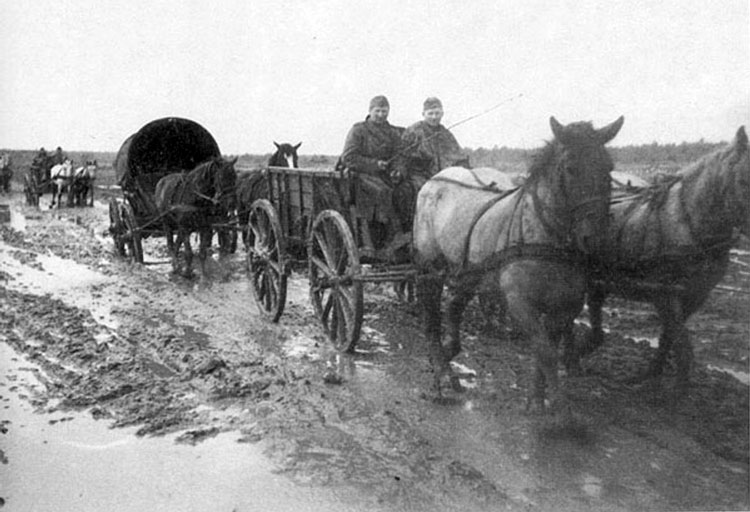
Roads in mud season, fall 1942.
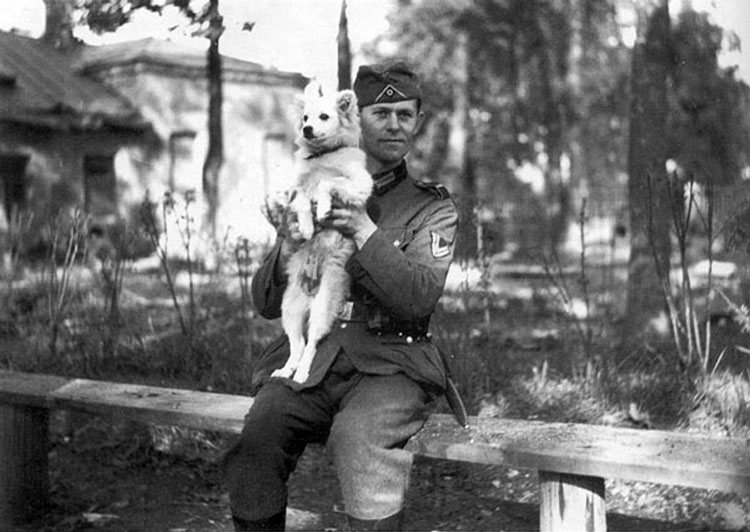
Spitz the dog, mascot of the HQ company.
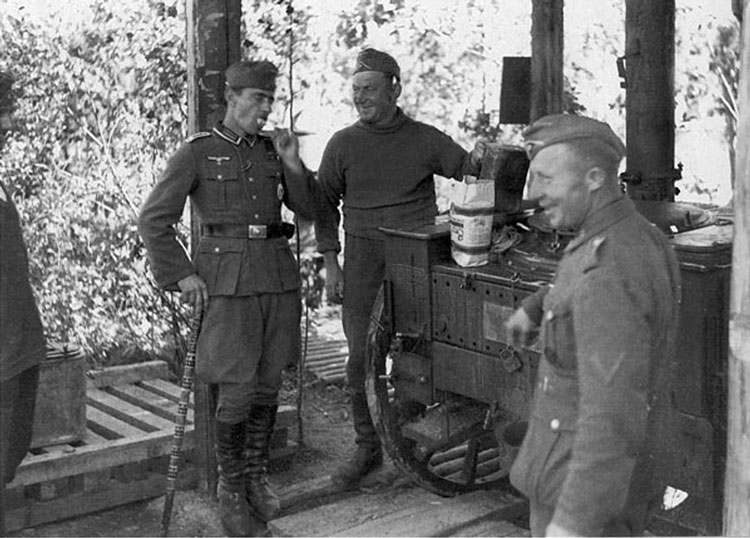
At the field kitchen: sampling the meal.
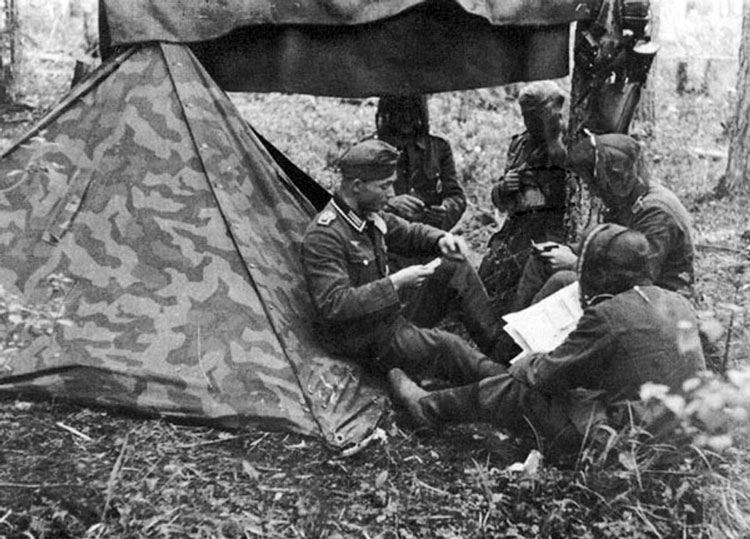
Press reporter Gundlach playing cards with the infantrymen.
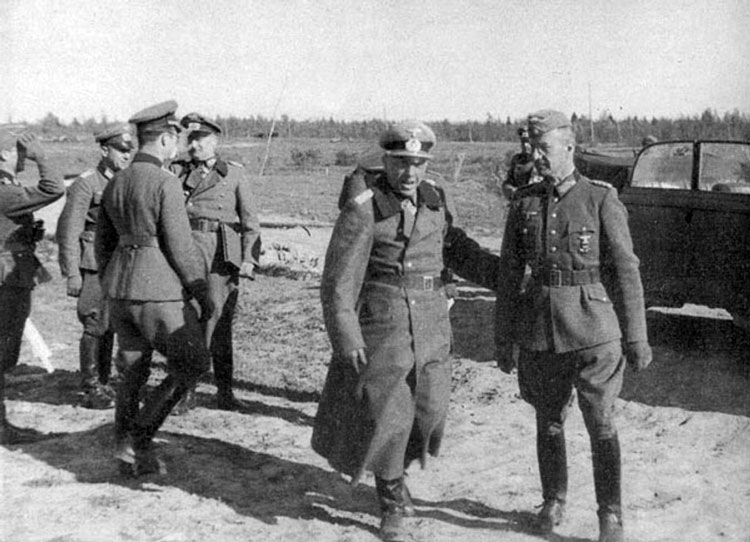
General-fieldmarshal von Kuchler, division commander general Goritz and other officers visiting positions to the north-east from Chudovo.
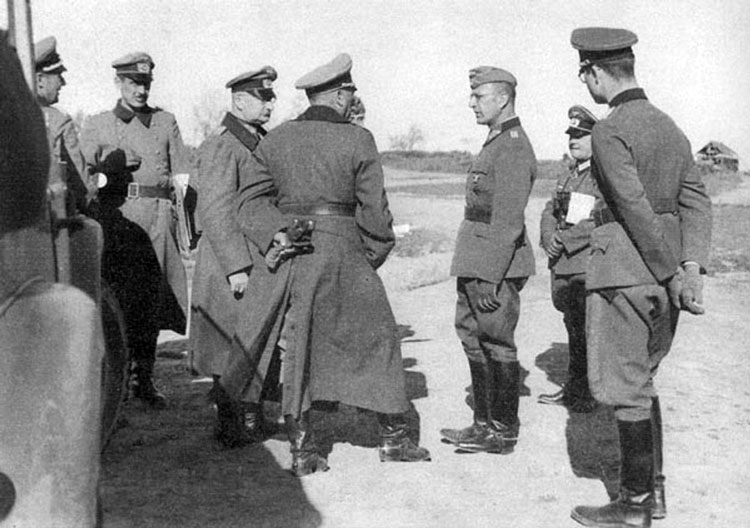
After visiting front, General-fieldmarshal von Kuchler bids farewell to division commander general Goritz, Colonel Gurran and Major von Raeder, August 1942.
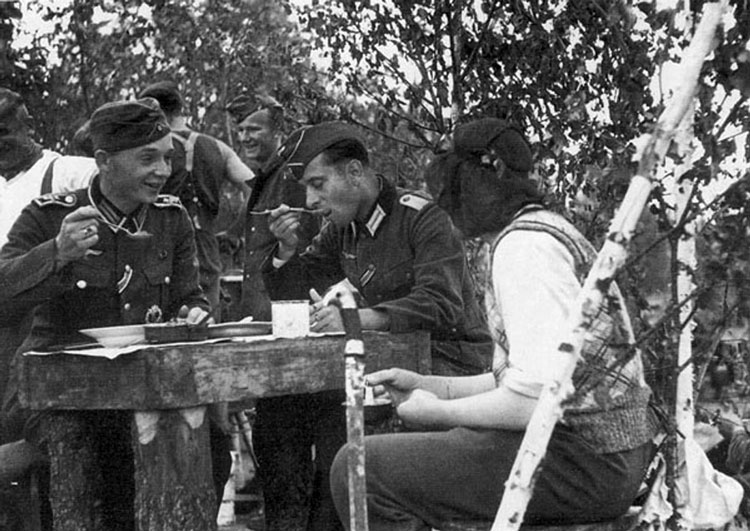
Lieutenant Schuster and press photographer Georg Gundlach.
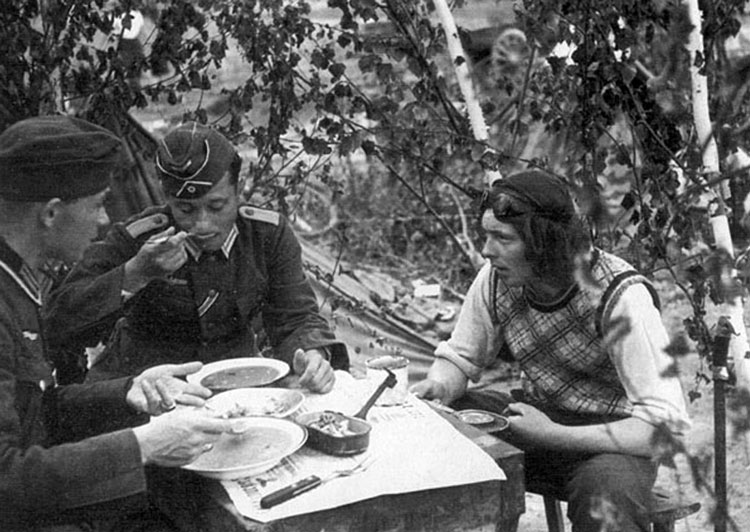
Lieutenant Schuster and Georg Gundlach.